Spin Off Autumn Retreat:
2026 Tickets on Sale Now!
SOAR 2026 Dates: October 11-16, 2026 | SOAR 2026 Location: York, PennsylvaniaImagine being in a room filled with people with the same interests while you learn from some of the top spinners and educators. You are all together for five glorious days in a beautiful location, making new memories, building skills, and, of course, spinning. This is why we think of the Spin Off Autumn Retreat (SOAR) as a spinner’s paradise. We hope you'll join us!
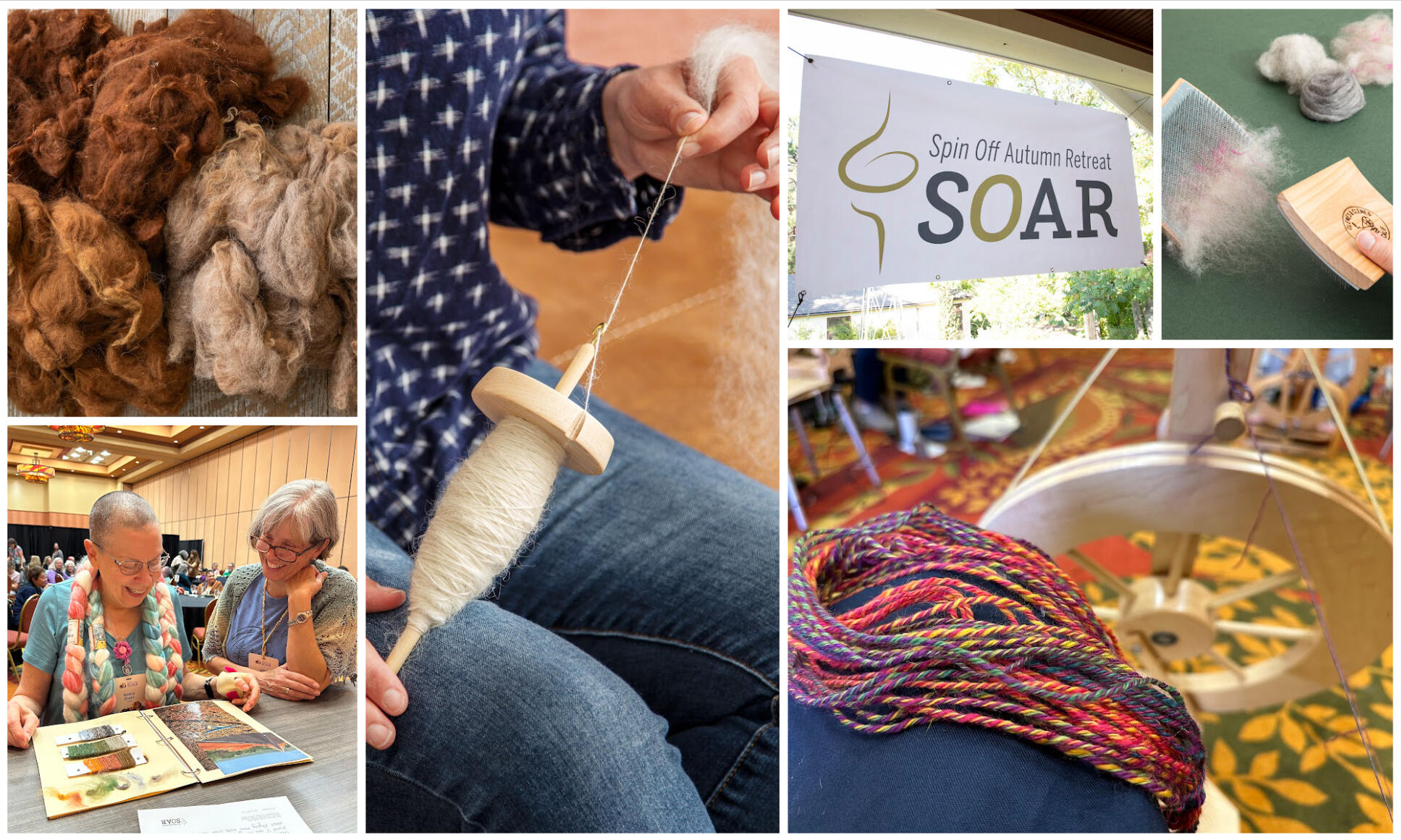
WHAT IS SOAR?
The Ultimate Spinning Retreat
There are fewer than 80 spaces total for this incredible handspinning experience!
The Spin Off Autumn Retreat (SOAR) is a retreat-style event where you can expand your skills and deepen your passion for spinning, all in a comfortable, accessible location. What could be better than stepping away from everyday life to spend five days spinning with like-minded fiber lovers? You’ll learn from some of the most outstanding spinning teachers and fiber artists in the world, including these instructors:Watch this page for updates and more 2026 instructor announcements.
(Read the full instructor bios here.)
Monica Jo Raphael (Anishinaabe – Sičaŋǧu Lakota), museum curator and fifth-generation quill-work artist who uses natural materials and both natural and modern dyes for her own artwork and workshops
TJ King (aka the Peahen and partner to Mike of the Spanish Peacock), spinner, writer, and teacher with nearly 20 years of experience in sharing her love of supported spinning and fiber arts through her classes, online community, and podcast
Charan Sachar, engineer turned potter and fiber artist, experiments with textures and pushes the boundaries of traditional spinning techniques
Sara C. Bixler, owner of Red Stone Glen Fiber Arts Center, where she is also the resident instructor teaching spinning and weaving
Tom Knisely, frequent Handwoven magazine contributor and instructor of many videos, including his plant-to-cloth video course, Weaving with Linen
Terri Guerette, past SOAR scholar, teaches workshops around the country and began spinning in 2004 and has never been more than an arm’s reach away from a spindle ever since
Maggie Casey, instructor of The Spinning Teacher, along with many other beloved videos, and author of Start Spinning
Kate Larson (she/her), editor of Farm & Fiber Knits and former editor of Spin Off magazine, author of The Practical Spinner’s Guide: Wool, and instructor of the new Backstrap Rigid Heddle: Weaving Pick-Up Bands video
**Don’t miss this worry-free spinning and fiber retreat! All accommodations, breakfasts, lunches, dinners, classes, materials fees, and evening events are included, but space is limited.
“The venue for SOAR has changed over the years, but the quality and depth of teaching has always been excellent. The sharing by teachers and fellow students alike has made me a more confident teacher who’s able to solve problems. If you have never been to a SOAR event, you should add it to the top of your bucket list.” – Jeannine G.
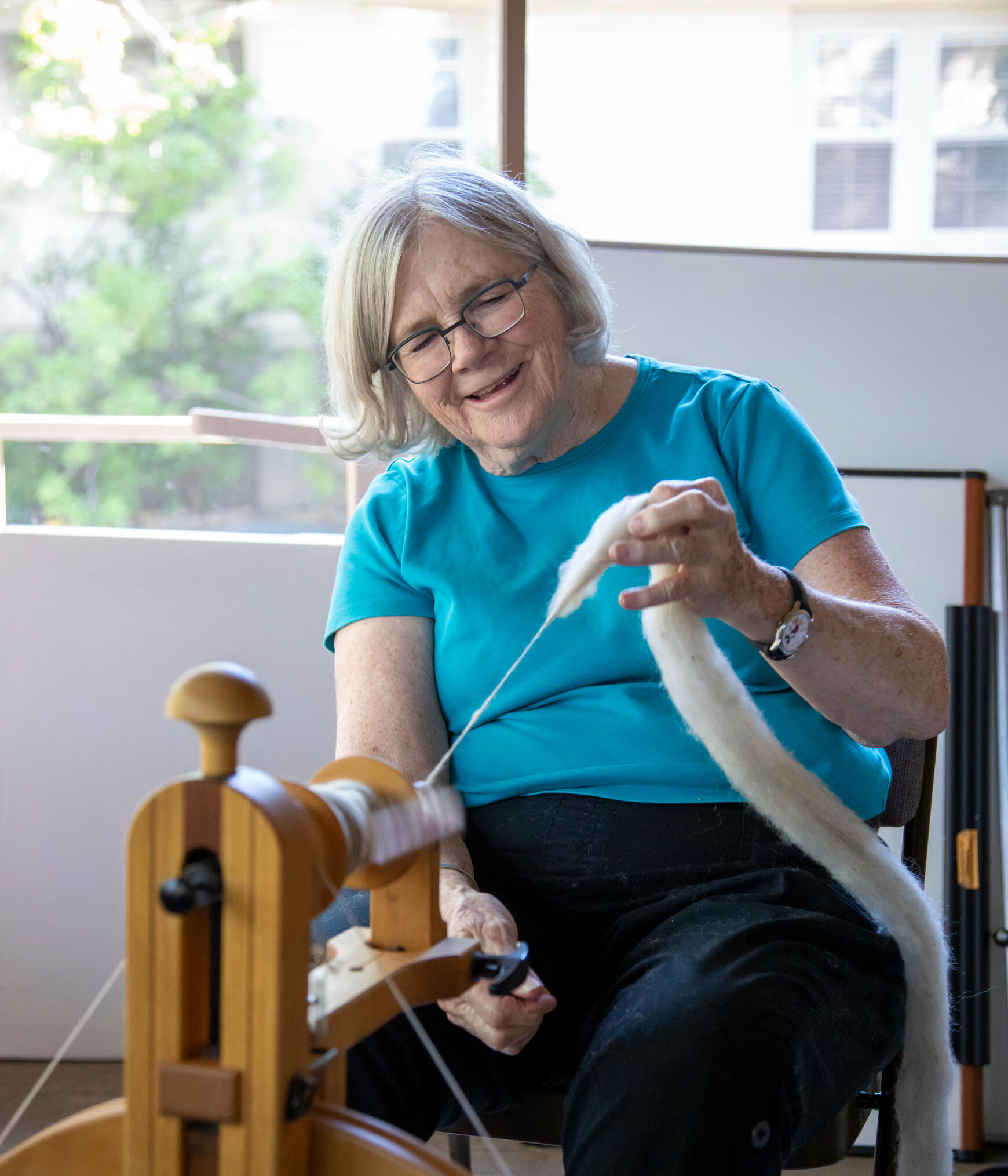
01
Learn From Legendary Spinners
You’ll get it all with four days of classes, inspiring teachers, engaging instruction on interesting topics, and plenty of spinning time.
02
Enjoy an All-Inclusive Event
Meals, classes, materials fees, a marketplace, and evening events are included with your all-inclusive ticket.
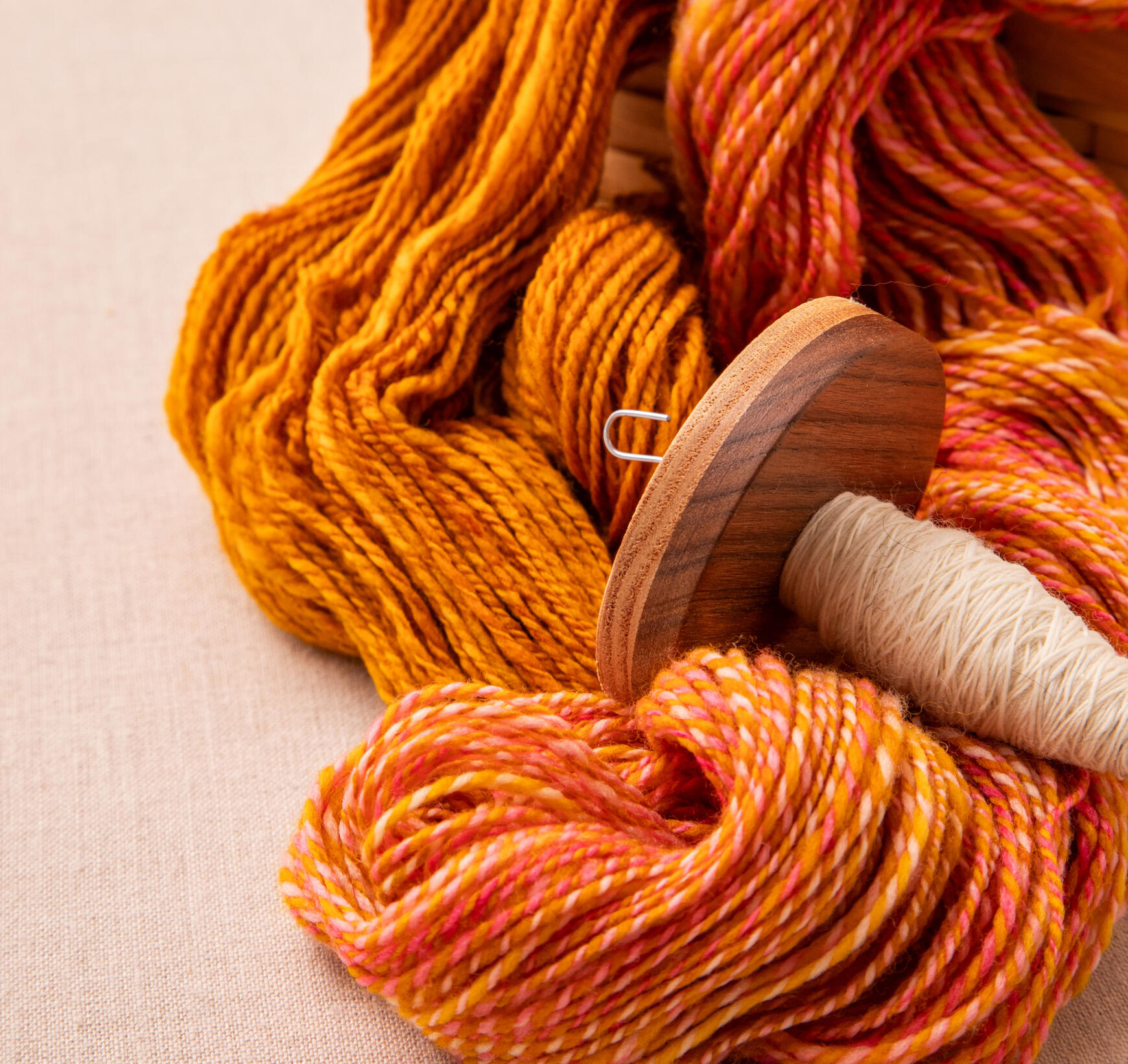
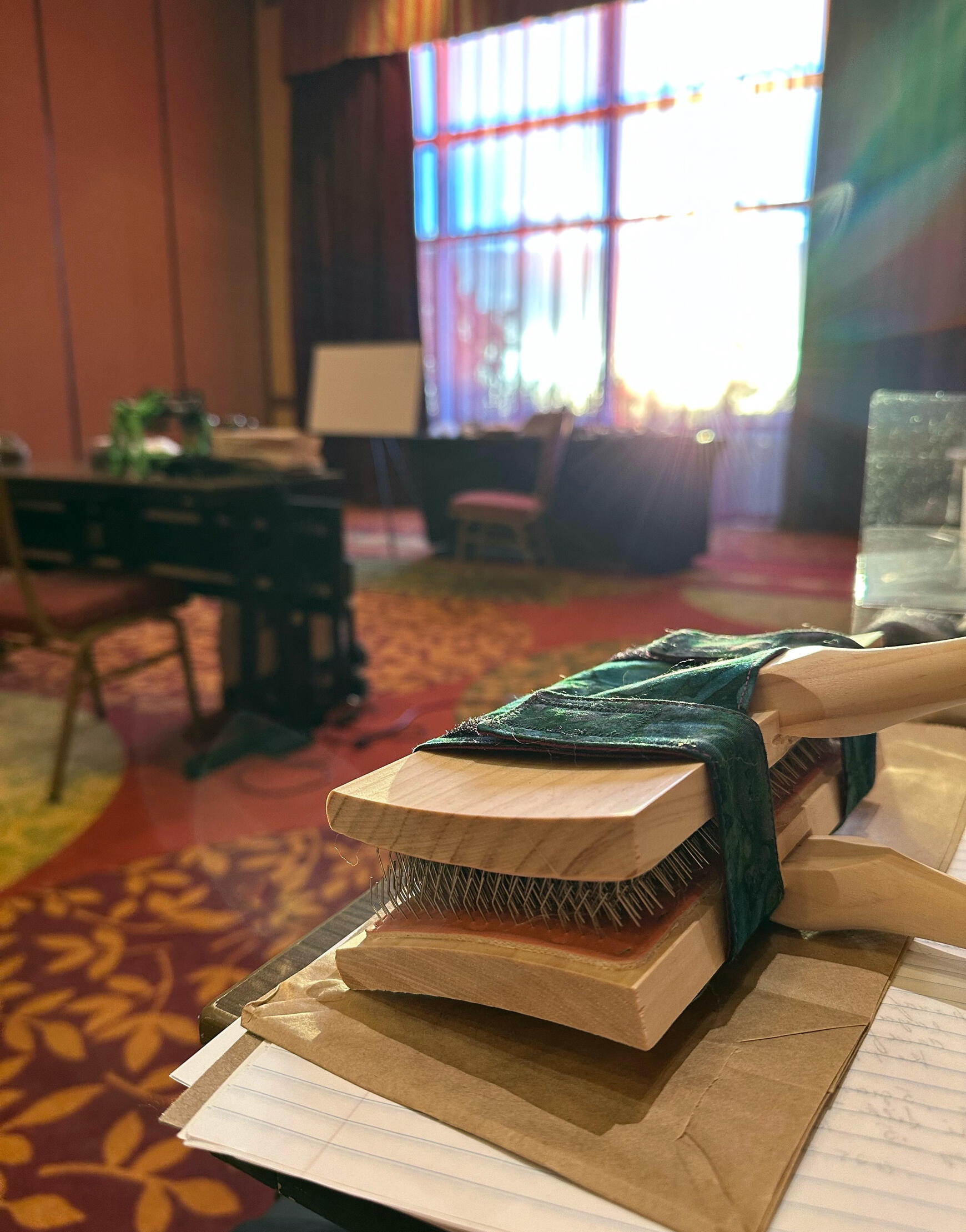
03
Relax with Evening Activities
Stick around after dinner for special evening talks, a shopping night where you could win big, and more!
04
Shop the SOAR Marketplace
The SOAR marketplace is a curated vendor experience filled with fiber, tools, and special finds for spinners.
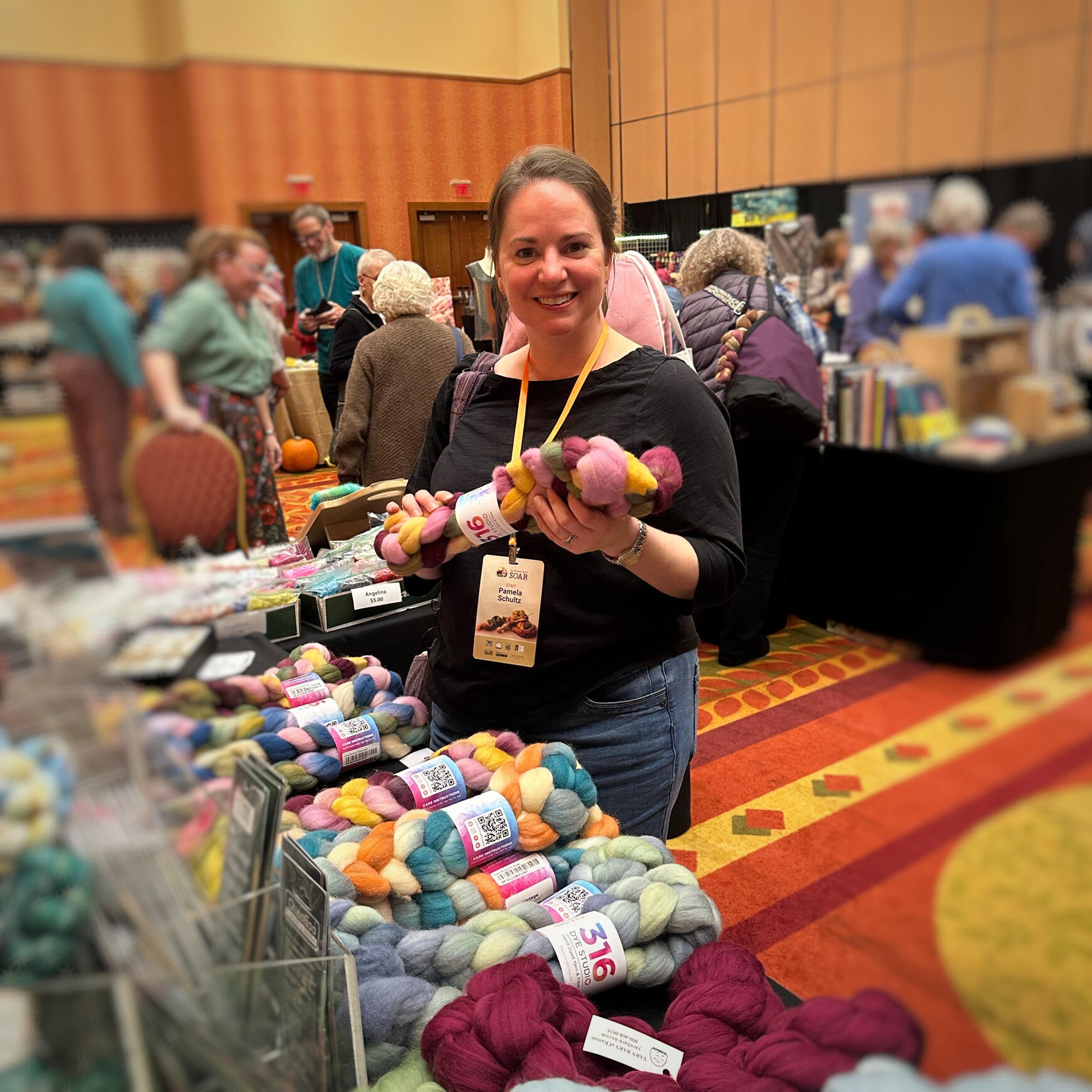
2026 Ticket Information
The SOAR 2026 pre-sale begins on Wednesday, January 7, 2026, and tickets go on sale for everyone beginning Friday, January 9! For those considering joining us, classes are selected based on the order in which tickets are purchased. That means the earlier you get on the list, the more class choices* you’ll have—so don’t delay!You may cancel your registration for any reason up to 90 days before the event for a refund minus a 10% processing fee.*2026 SOAR Attendees will receive a link to build their class schedule by the end of May 2026. Selection times will be based on the order in which tickets were purchased, and further details will be announced next year.
2026 Itinerary
The SOAR team will announce more details, including special evening speakers and activities, closer to the event.
Please note that the SOAR itinerary is subject to change.
Sunday, October 11, 2026
Registration Opens
Marketplace & Dinner
Welcome and Introductions following dinnerMonday, October 12–Tuesday, October 13, 2026
Breakfast
9:00 AM - 12:00 PM: Intensive Classes
Lunch
1:30 PM - 4:30 PM: Intensive Classes
Marketplace & Dinner
Evening Program following dinnerWednesday, October 14, 2026
Breakfast
9:00 AM - 12:00 PM: Sampler Classes
Lunch
1:30 PM - 4:30 PM: Sampler Classes
Marketplace & Dinner
Evening Program following dinnerThursday, October 15, 2026
Breakfast
9:00 AM - 12:00 PM: Sampler Classes
Lunch
1:30 PM - 4:30 PM: Sampler Classes
Dinner
Spin-in and Fashion Show to follow dinnerFriday, October 16, 2026
Breakfast
Hotel Check Out
Intensive Classes
What’s an intensive? It’s a focused 2-day class where you’ll dive deep into a skill with a knowledgeable and passionate instructor. Intensive classes will be held on Monday and Tuesday of the event. 2026 intensive topics will be announced in March, but feel free to check out the 2025 classes here while you wait.Have additional questions about the classes? Are you curious which ones are beginner-friendly? Contact us at [email protected].
Sampler Classes
What’s a sampler? A sampler is a 3-hour class session where you’ll get a taste of a subject: try new techniques, explore new materials, or spark creativity. Participants take part in four samplers over the course of Wednesday and Thursday. 2026 sampler topics will be announced in March, but feel free to check out the 2025 classes here while you wait.Have additional questions about the classes? Are you curious which ones are beginner-friendly? Contact us at [email protected].
2026 Instructors
At SOAR, you’ll learn from some of the most outstanding spinning teachers and fiber artists in the world. Watch this page in the coming months for the full 2026 instructor lineup!
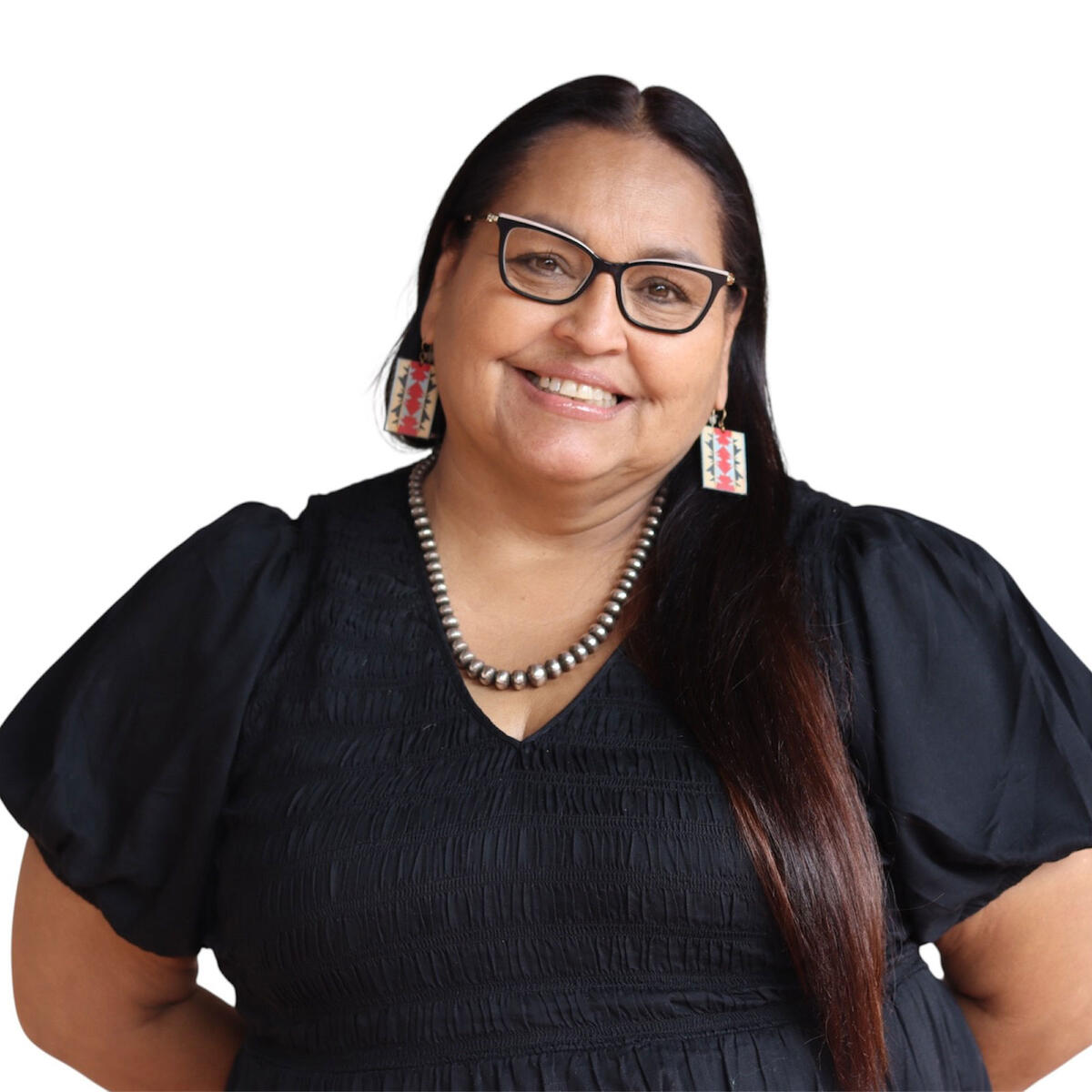
Monica Jo Raphael
Born to the Ginew “golden eagle” clan of the Anishinaabek, Monica Jo Raphael is an enrolled member of the Grand Traverse Band of Ottawa and Chippewa, a descendant of Chief Spotted Tail of the Sičánğu Lakota, and the Huron and Pokagon Potawatomi. She learned the traditional art form of quill and birch-box making while living in the village of Peshawbestown on the Grand Traverse Band Reservation. A fifth-generation quill worker, Monica uses natural materials, including birch bark, sweetgrass, porcupine quills, and natural dyes in her own work and in workshops around the country. Monica’s artwork can be found in museum and personal collections, including the Smithsonian National Museum of the American Indian. She is curator of Great Lakes Native Art, Cultures and Community Engagement at the Eiteljorg Museum of American Indians and Western Art. Visit the Eiteljorg website to learn more about Monica and her work.
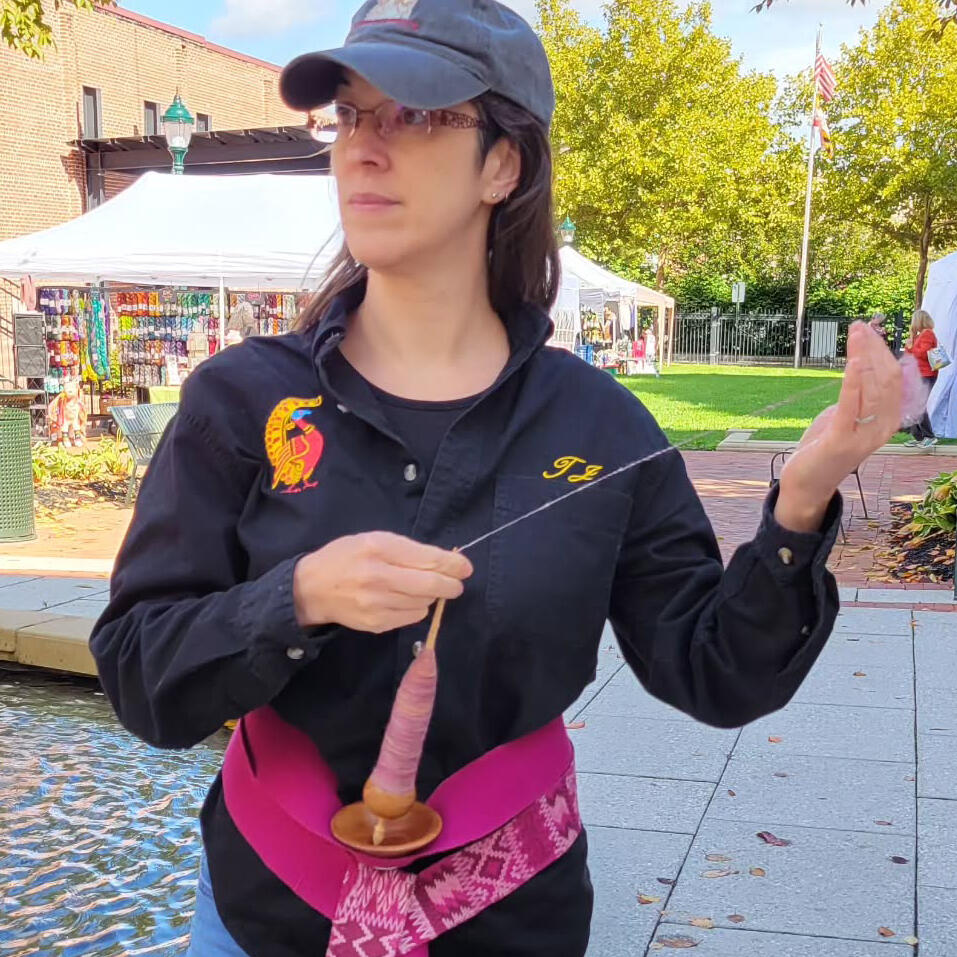
TJ King
TJ King—a.k.a. the Peahen—is a spinner, writer, and teacher with nearly 20 years of experience in helping others find joy in fiber arts. While her passion is supported spinning, she also weaves, knits, felts, and crochets. TJ shares her spinning knowledge, invaluable tips, and personal projects on social media, her own podcast—The Peahen’s Ponderings—classes, and more. She and her husband, Mike of the Spanish Peacock, are working on a new passion project—building the Cedar Springs Fiber Arts Center in West Virginia. Learn more about TJ and her supported spinning adventures at thepeahenspod.com.
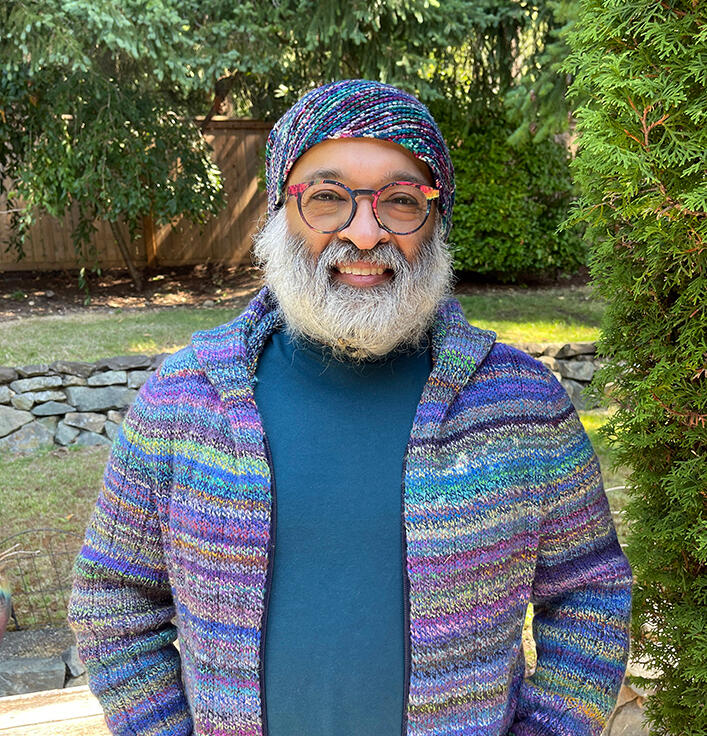
Charan Sachar
Charan Sachar is an artist whose work reflects his passion for the fiber arts, including knitting, spinning, weaving, and quilting, and he uses them as inspiration for his clay work. In all the fields that he works in, he loves to accept challenges and approach the making with a “what if...” attitude. Charan specializes in creating art yarns with textures, using traditional spinning techniques and pushing them an extra step to create unique yarns. As a teacher, he shares his preferences and his learnings along his journey, but also encourages his students to try techniques/materials on their own and decide for themselves. Learn more at creativewithclay.com.
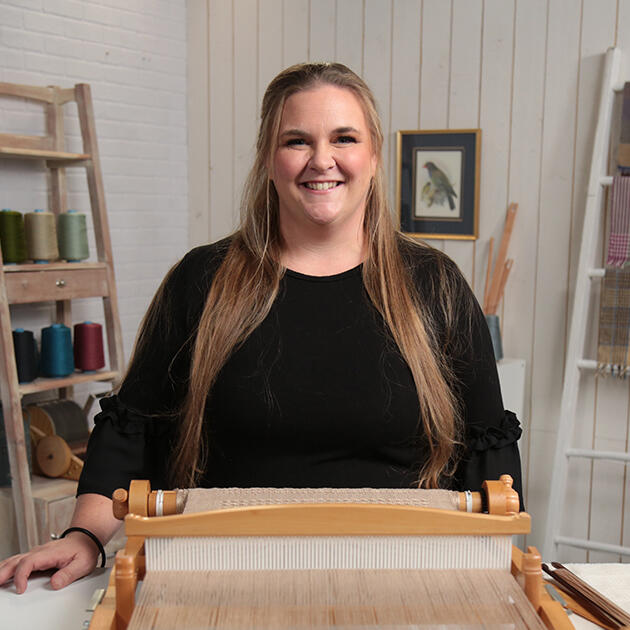
Sara C. Bixler
Sara C. Bixler is the owner and resident instructor of Red Stone Glen Fiber Arts Center in York, Pennsylvania. She has been teaching spinning and weaving for about 10 years and prides herself on having a broad knowledge spectrum to share with her students. She holds a Bachelor of Fine Art and a Bachelor of Science in K-12 education—although she gives full credit for the depth of her knowledge to her apprenticeship with her father, Tom Knisely. You can find many examples of Sara’s work in issues of Handwoven and Little Looms and in one of her many weaving videos with Long Thread Media.
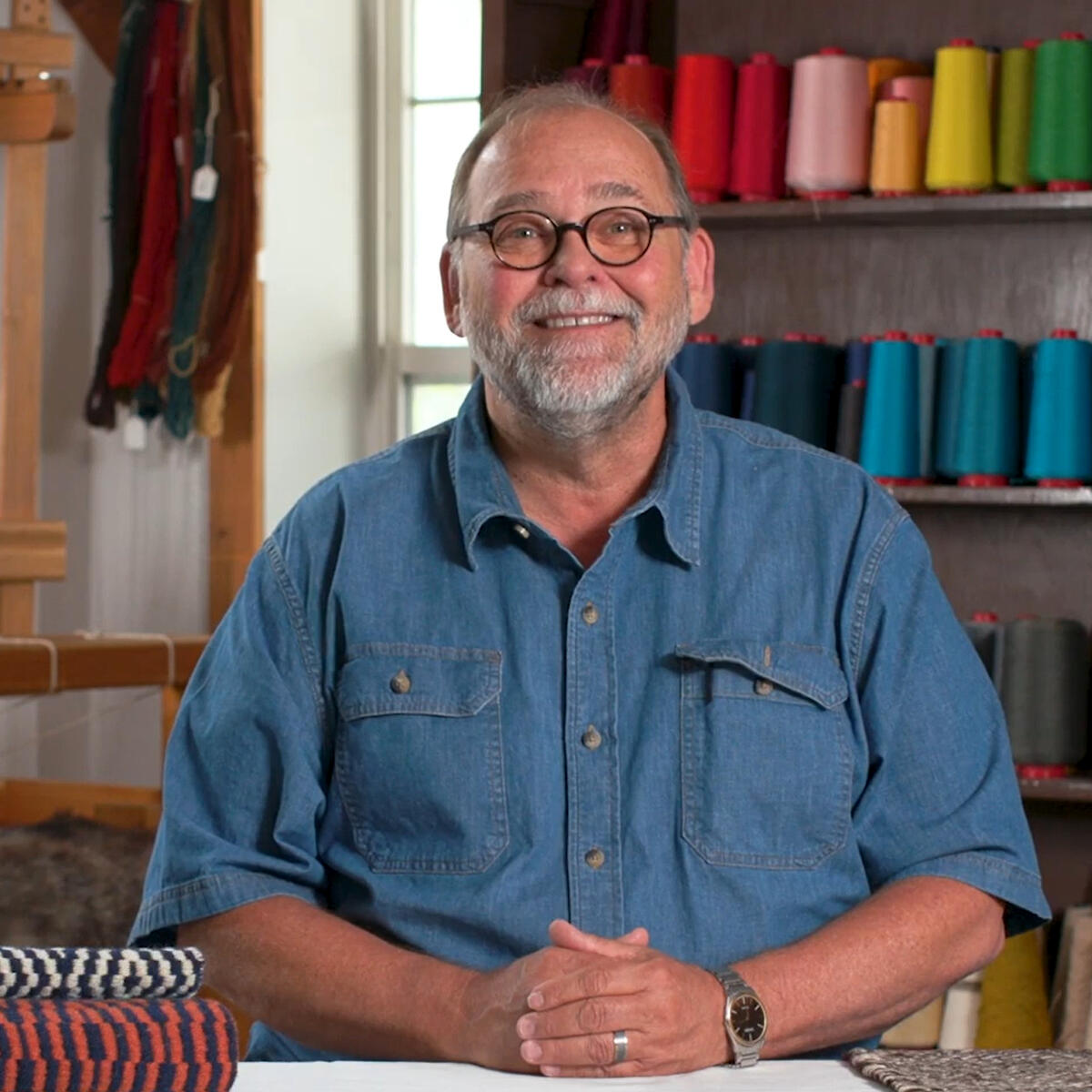
Tom Knisely
Tom Knisely has made his career from his interest and love of textiles from around the world. Tom weaves professionally and is an avid collector of antique textiles, wheels, and more. He has been studying, collecting, and teaching others about weaving and spinning for more than forty years. In addition to teaching, he is a frequent contributor to Handwoven and Spin Off magazines. Tom is renowned among his weaving students for his kindness, good humor, and seemingly infinite knowledge on the subject of weaving. You’ll often find him teaching at Red Stone Glen Fiber Arts Center in York Haven, Pennsylvania.
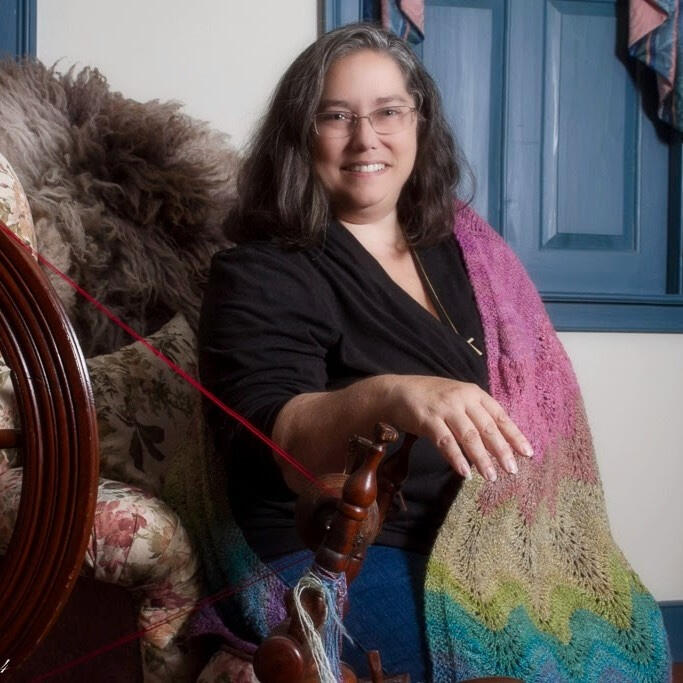
Terri Guerette
Terri Guerette began spinning in 2004 and has never been more than an arm’s reach away from a spindle ever since. Demonstrating and teaching fiber arts at living history events, schools, farm days, and fairs, Terri is always happy to share her knowledge. She was selected as a SOAR scholar in 2011 and went on to publish handspinning articles in a number of publications, teach workshops around the country, and earn many awards for her textile work. While she loves learning and sharing a wide variety of fibery topics, she is especially passionate about silk spinning and reeling, lace spinning and knitting, and spindles of all shapes and sizes.
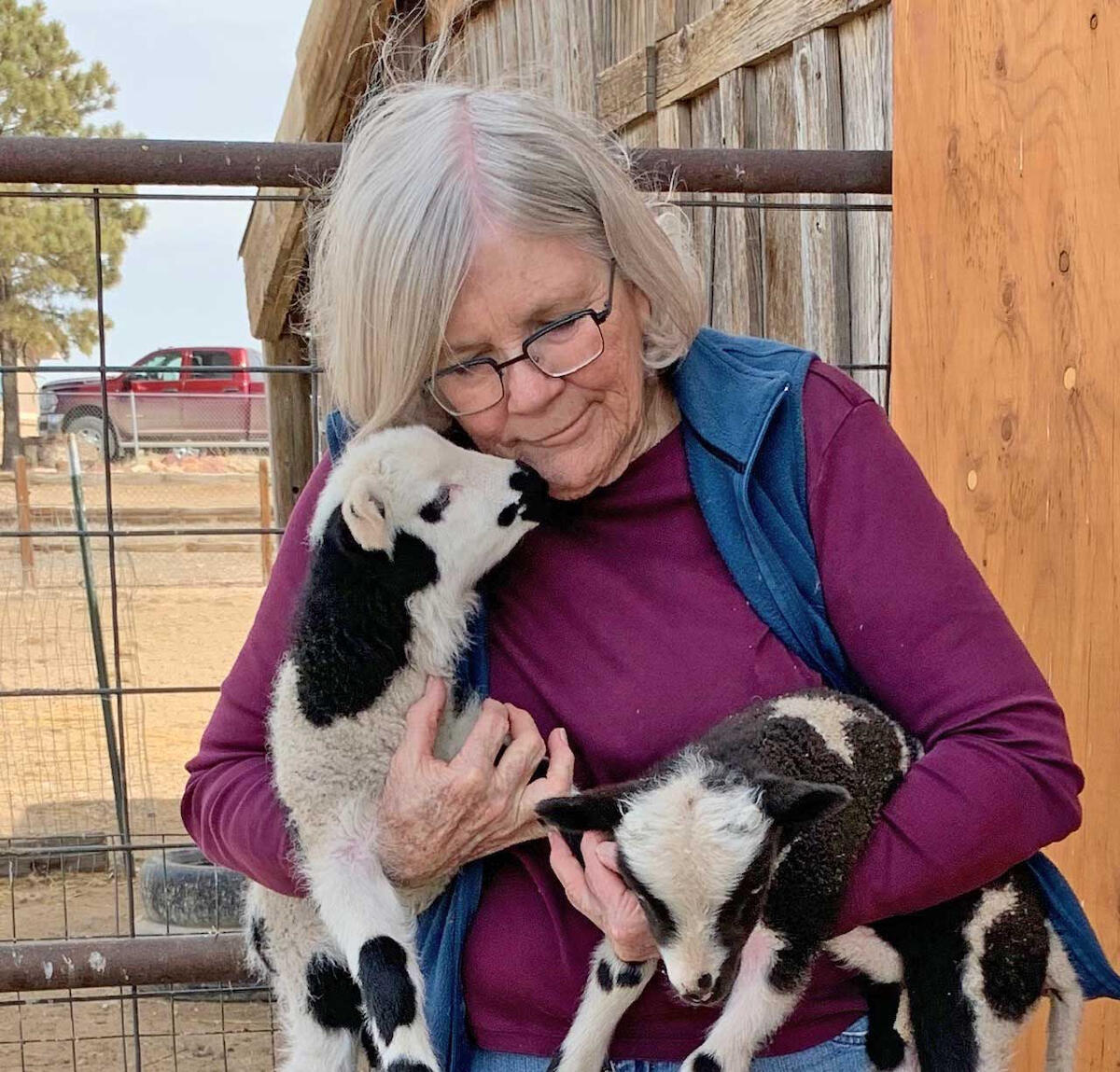
Maggie Casey
Maggie Casey has been addicted to spinning since the last century, and while some people are proud of their wine cellars, she much prefers her basement full of fleece. Maggie was co-owner of Shuttles, Spindles & Skeins in Boulder, Colorado, until it closed in 2020. She teaches at events around the country, including Estes Park Wool Market, Harrisville Designs, John C. Campbell Folk School, Maryland Sheep & Wool, PlyAway, and SOAR. She holds Part 1 of HGA’s Certificate of Excellence in Handspinning and is the author of Start Spinning, many articles, and several videos from Long Thread Media.
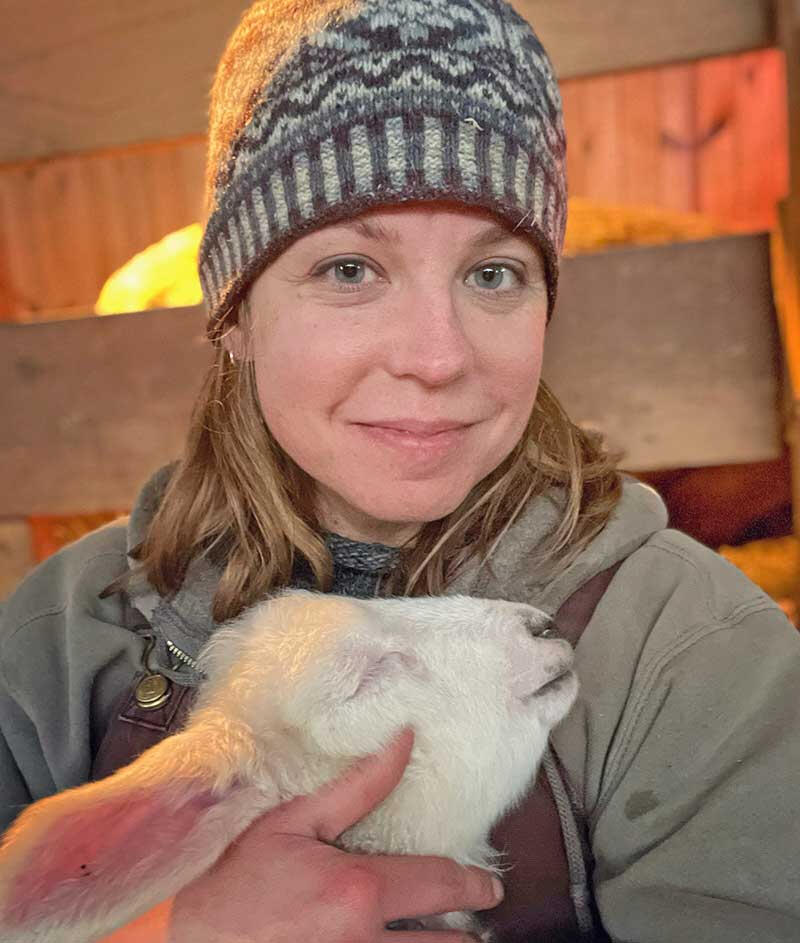
Kate Larson
Kate Larson (she/her) is the editor of Farm & Fiber Knits, former editor of Spin Off, and loves using fiber arts as a bridge between her passions for art and agriculture. She keeps a flock of Border Leicester sheep and teaches handspinning and knitting throughout the United States. Kate is the author of The Practical Spinner’s Guide: Wool (Interweave, 2015), many articles and patterns, and several videos, including Backstrap Rigid Heddle: Weaving Pick-Up Bands (Long Thread Media, 2025).
2026 Sponsors
Treenway Silks
You’ll find the largest variety of silk spinning fibers, silk yarn, and silk threads & ribbons at www.TreenwaySilks.com. Choose from a rainbow of hand-dyed colors. Love natural? Our array of wild silk and silk-blends provide choices beyond white.
Greenwood Fiberworks
Greenwood Fiberworks is an indie dye company that specializes in hand-dyeing luxury fibers and yarns. When you visit our online store you'll find a selection of yak, camel, merino, bamboo, blends, and more, all celebrating our love of spinning and fiber. When we aren't in Utah dyeing fiber, we are on the road and look forward to seeing you in Pennsylvania. Visit www.greenwoodfiberworks.com or email us at [email protected].
Red Stone Glen
Everyone here at Red Stone Glen is looking forward to welcoming you to York County, PA. Our fiber arts center is located 20 minutes from Heritage Hills Resort, and we are so excited to participate as a sponsor of this year's SOAR. As a fiber arts center, our mission is teaching, kinship, and passion. As a part of this year's Marketplace, we will bring you an array of products from our shop, including fiber, tools, and more. See you in October. Visit us!
The Spanish Peacock
Spanish Peacock creates thoughtfully crafted tools and goods for spinners and fiber artists who value beauty as much as function. Led by master wood turner Mike King, the brand is known for elegant hand-turned spindles and well-designed spinning accessories, along with apparel and gifts that celebrate the fiber life. Rooted in craftsmanship and creativity, Spanish Peacock supports the fiber arts community through teaching, gatherings, and a shared love of making by hand. Learn more.
Flying Fibers
Flying Fibers is a charming wool and fiber haven run by mother-daughter duo Jeri Robinson-Lawrence and Irina Lawrence Mathias, nestled in scenic York County, Pennsylvania. They’re passionate about premium breed-specific British and American fibers, yarns, and rare-breed sheep, bringing together hand-dyed yarns, spinning supplies, lavender farm goods, and a welcoming space for makers to explore natural fiber and sustainable craft. Whether you’re shopping in their cozy brick-and-mortar shop, discovering new fibers online, or catching them at festivals and events along the East Coast, Flying Fibers celebrates creativity, connection, and the joy of fiber arts. Learn more.
Daedalus Spinning Wheels
Daedalus Spinning Wheels is a husband-and-wife-run maker brand based in Lexington, Kentucky, dedicated to designing and building high-performance electric spinning wheels and fiber tools for spinners who love innovation and quality. Born from a blend of engineering know-how and a deep passion for fiber craft, their lightweight, whisper-quiet carbon fiber e-spinners and accessories are thoughtfully refined with direct community feedback, bringing modern precision and joy to the age-old craft of spinning. Learn more.
Long Thread Media
Long Thread Media serves content for the handspinning, handweaving, knitting, and traditional needlework communities online, in person, and in print. We are proud to publish Handwoven, Easy Weaving with Little Looms, Farm & Fiber Knits, PieceWork, and Spin Off, as well as offer information, education, and community to crafters in those fields.
2026 Frequently Asked Questions (FAQ)
Can I take just one class?
Because SOAR is an immersive experience with activities outside class time, classes are available only as part of a 5-day package.How long are the classes?
On Monday and Tuesday, each student will participate in a 2-day intensive (6 hours of instruction each day) designed to explore a subject in depth. On Wednesday and Thursday, participants will sample four subjects in 3-hour sessions. These classes emphasize trying new techniques, exploring unusual materials, and sparking your creativity.When do I choose classes, and how do class selections work?
Participants will be invited to choose classes in May 2026 in the order in which tickets were purchased. When it’s your turn to select classes, a survey will be sent to the email address we have on file for you. You’ll make your selections and requests in that survey. We recommend taking the survey on a desktop or laptop computer, and we suggest selecting classes as soon as you receive the link to ensure the best availability.Are there materials fees?
We have included the cost of basic materials for all your classes in your event ticket. In some cases, instructors may allow you to purchase some specialized tools used after the completion of that class.Can a beginning spinner come to SOAR?
We have attendees at a range of skill levels and welcome people who are early in their spinning journey. The essential skills needed for most classes are to spin a continuous thread, make a plied yarn (just a basic 2-ply is fine as long as it holds together), and make yarn with whatever spinning device you’ll bring, whether it’s a spinning wheel, e-spinner, or spindle(s). Class descriptions will indicate which sessions are suitable for spinners at all levels and what equipment is required. Please get in touch with us at [email protected] if you have questions about whether a particular class is appropriate for you.Where will the event be held?
The event will be held at the Heritage Hills Resort in York, Pennsylvania.Is the event handicap accessible?
The Heritage Hills Resort offers a range of facilities catering to people of all abilities; you can learn more on their website. If you have difficulty with mobility, please let us know by emailing [email protected] so we can provide further details.How do I get to The Heritage Hills Resort in York, Pennsylvania?
The Heritage Hills Resort is located at 2700 Mt. Rose Avenue, York, Pennsylvania 17402, just off Interstate 83. The resort is 30 miles or about 30 minutes from Harrisburg International Airport (MDT) and 65 miles from Baltimore Airport (BWI). The lowest-cost transportation options will be Uber or Lyft, which can be scheduled and priced in advance. You can also rent a car at MDT or BWI if you prefer to have a vehicle with you throughout the event.What is the marketplace like?
The SOAR marketplace is a curated vendor experience filled with fiber, tools, and special finds for spinners. We are working on details for the 2026 sponsors to host a limited number of curated vendors. More information will be available in the coming months; watch this SOAR page for updates as new confirmed sponsors (vendors) are added!How do I find a roommate if I buy a shared room ticket?
When you register, you will select either a private hotel room or a double room with two beds and a shared bathroom. If you choose a shared room, please email [email protected] to indicate your roommate request or to let us know if you would like us to introduce you to other guests seeking roommates.Can my spouse/companion attend?
Spouses/companions need to be pre-approved by Long Thread Media before the event to ensure we can accommodate them. Due to space limitations, spouses/companions may not attend classes, meals, or activities without pre-approval, and additional charges may apply. Attendees who have approved guests joining them should choose a private ticket type.What meals are included?
The event begins with dinner on Sunday and includes breakfast, lunch, and dinner Monday through Thursday. On Friday, breakfast is included.I’m gluten-free/dairy-free/have specific food allergies. Can you accommodate me?
We will send a questionnaire in May 2026 for you to make class selections and to gather information about your food-related allergies. In that survey, please let us know of any food allergies, and we’ll coordinate with the kitchen and let you know what options are available. Most meals during the event are buffet-style, and you will build your own plate. We can only accommodate dietary restrictions or allergens. Nutritional preferences cannot be accommodated due to the size of the event.What if I need to change my plans?
You may cancel your registration for any reason up to 90 days before the event for a refund. We charge a 10% processing fee, so you will receive 90% of your payment back.More About SOAR
For more than 40 years, the Spin Off Annual Retreat (SOAR) has been a beloved institution, gathering far-flung spinners every fall. This annual event can be a chance to see friends, or meet new ones, and an opportunity to learn from renowned instructors from around the world. It can also be a fiber-filled escape, and even a great shopping experience. Whether this is your first event or you’ve been to 5, 10, or even 40 past SOAR events, we hope you’ll consider joining us this year!
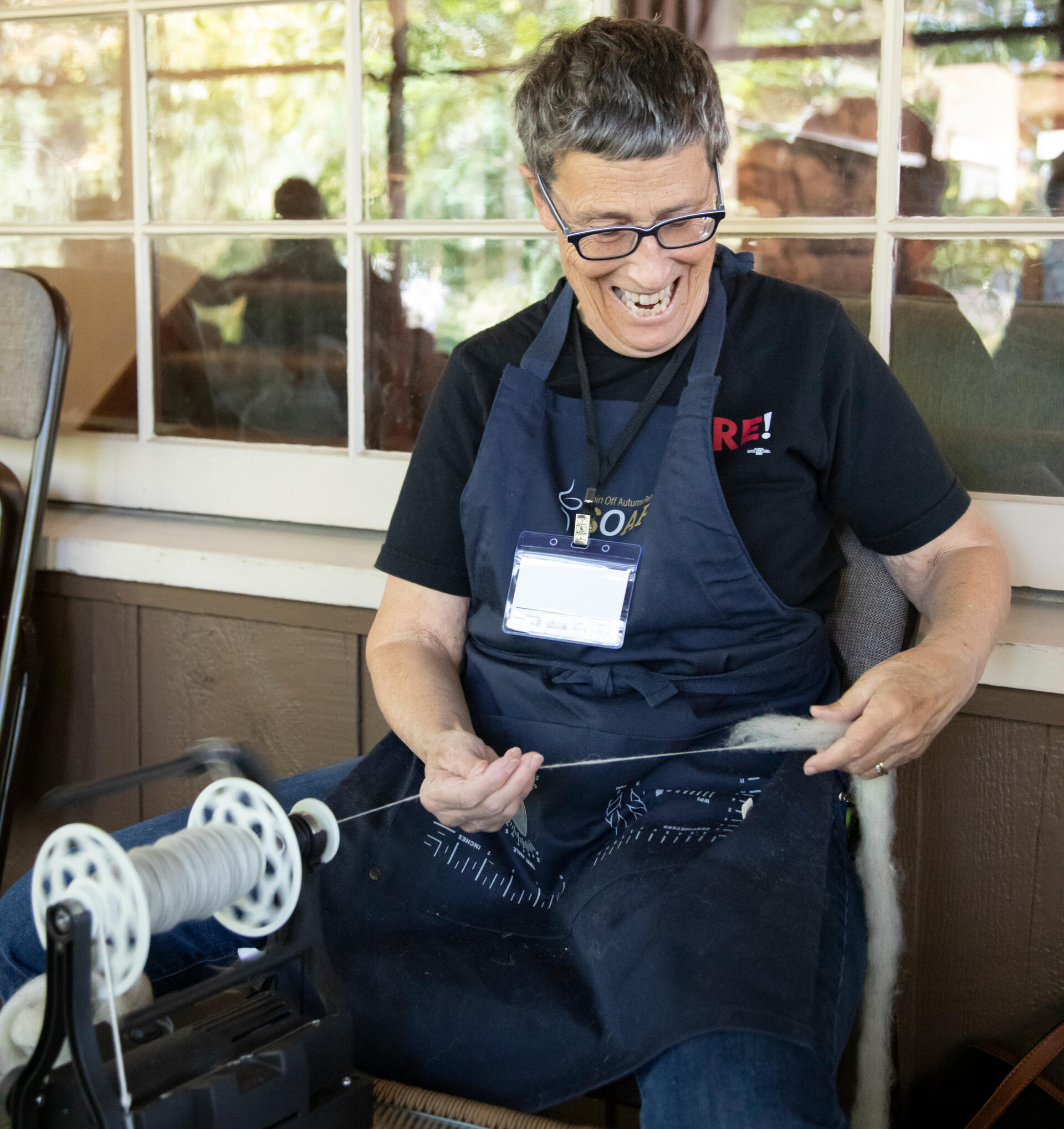
Get Updates for SOAR 2026
Sign up for the SOAR newsletter.
Contact Us
Thank you
SOAR is brought to you by Long Thread Media LLC.
Long Thread Media LLC © 2026. All rights reserved.
SOAR Attendee Information
SOAR Dates: October 12-17, 2025 | SOAR Location: Loveland, ColoradoThink of the Spin Off Autumn Retreat (SOAR) as a spinner’s paradise. Imagine being in a room filled with people with the same interests while you learn from some of the top spinners and educators. You are all together for five glorious days in a beautiful location, making new memories, building skills, and, of course, spinning!
Below we have listed some important information to help you prepare for SOAR in October.
Class SuppliesOnce your schedule is confirmed, visit the Classes page for a list of items to bring to class. If any other preparation is required for a class that you’ve selected, you will receive a separate email.
Sunday Check-InSOAR check-in will begin at 4 pm at the Embassy Suites in Loveland, Colorado, on October 12. The hotel's address is 4705 Clydesdale Pkwy, Loveland, CO 80538.The closest major airport is Denver International Airport, which is about a 50-minute drive from Loveland. There are rental car facilities at the airport, Uber and Lyft pickup points, and Groome Transportation offers a shuttle service to and from Northern Colorado from the airport.
HotelAll hotel accommodations are included in your SOAR ticket. We will be staying at the Embassy Suites in Loveland for the entire event. The SOAR team will provide the hotel with the final rooming list. If you plan to arrive early or stay late, you will need to contact the hotel directly and reserve any extra night(s). If for any reason you need to cancel your SOAR ticket, pease contact the SOAR team directly. We ask that you do not call the hotel and cancel your room as it can cause confusion.If you plan on bringing a partner or spouse, please inform SOAR staff ahead of time so we can add their name to the room. There is no charge to add your partner or spouse to your private room. However, any guests who are not paid attendees will need to purchase a meal ticket to participate in meals included in the SOAR program
ParkingThe Embassy Suites in Loveland has paid parking, however we have been provided with a code for complimentary parking for all attendees. That code is listed below:ESLNP
CommunicationThe primary means of communication for SOAR will be emails from [email protected]. We recommend adding this email address to your contacts to ensure that our emails do not end up in your junk or spam folder. These emails are sent through the same platform as all Long Thread Media newsletters, so we ask that you do not mark any emails from Handwoven, Little Looms, Spin Off, Farm & Fiber Knits, or PieceWork as spam. Please reach out to [email protected] at any time if you have a question that isn't answered here.
2025 Intensives
What’s an intensive? It’s a focused 2-day class where you’ll dive deep into a skill with a knowledgeable and passionate instructor. Intensive classes will be held on Monday and Tuesday of the event. 2026 intenstive topics will be announced next year.Have additional questions about the classes? Are you curious which ones are beginner-friendly? Contact us at [email protected].
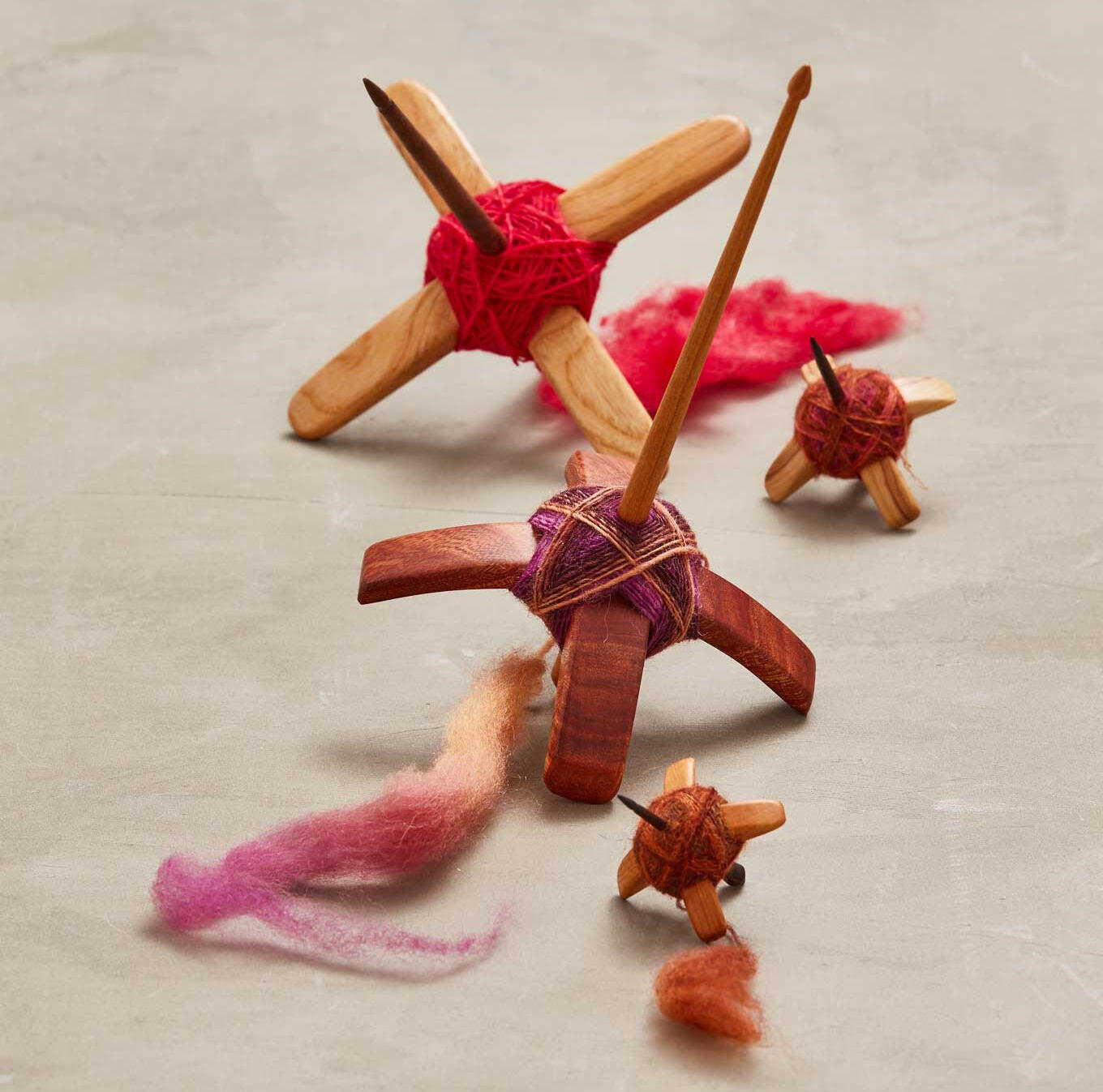
Everything Turkish Spindle (2025)
Instructor: Amelia Garripoli
Ready to elevate your Turkish spindle spinning? Over two days of hands-on fun, we’ll dive deep into this versatile cross-armed powerhouse. Starting with the fundamentals to get you spindling efficiently and confidently, we will cover everything from drafting, getting the twist just right, troubleshooting for consistent results, exploring different fibers, different spinning draws, and more. You’ll pick up tips for improving productivity, consistency, and control. Finally, we’ll wrap up with plying techniques that’ll have you plying at top speed with true Andean plying—plus a bonus exploration of chain plying and ply-on-the-fly.Required Supplies: Students should bring at least one Turkish spindle (more than one is best).Additional Notes: If possible, bring Turkish spindles in three weights: less than 1 ounce, about 1 ounce, and about 1–1.5 ounces. If you have any other spindles you have questions about, bring them, too.
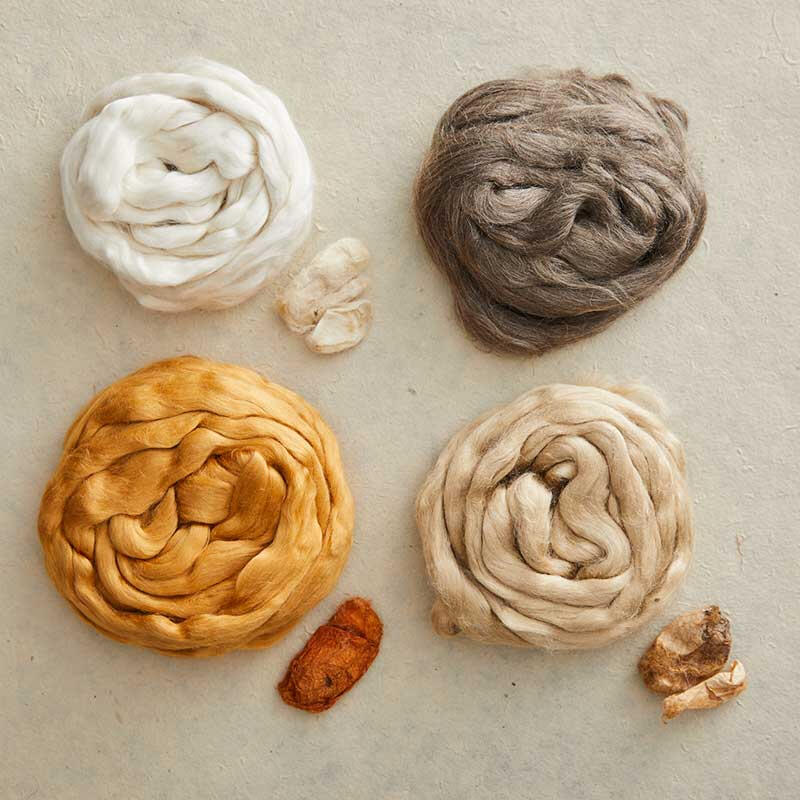
Blend and Spin with Wild Silk (2025)
Instructor: Heavenly Bresser
Wild silks are unique, exquisite fibers that are perfect for the handspinner’s stash. When compared to bombyx silk, they are less slippery, shorter, and often easier to spin. These silks are quite desirable and great candidates for blending, especially considering their beautiful range of colors. Let’s go wild and learn special blending techniques and get comfortable with blending a variety of wild silk with handcards. Then, we’ll take them to wheel or spindle for a spin. Heavenly will also demonstrate how to blend with wild silks using a blending board and drumcarder. You’ll leave this session knowing how to create colorful, elegant, and sophisticated blends that are worthy of spinning.Required Supplies: Spinning wheel or e-spinner in working order with at least 3 empty bobbins (2 for spinning; 1 for plying), lazy kate or equivalent, pair of handcards (72 tpi recommended), notepad with writing utensil. Spindles and spindle kates are welcome.
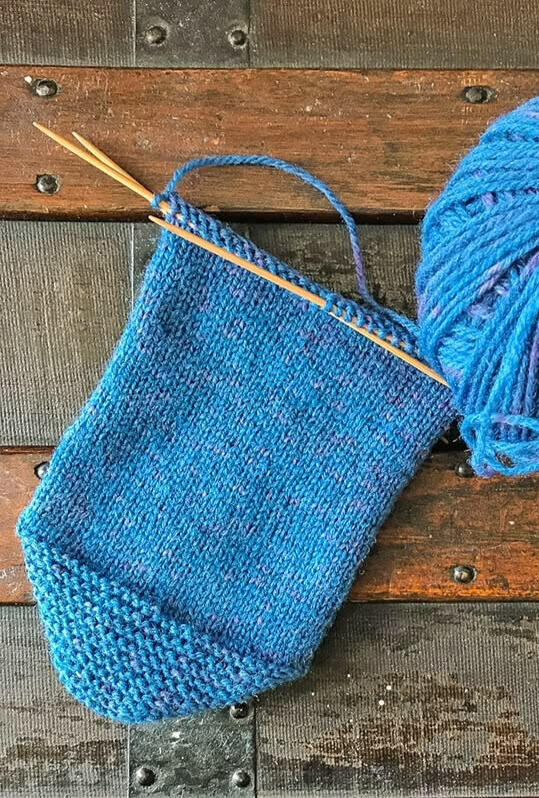
Sweet Feet: Spinning for Socks (2025)
Instructor: Kate Larson
Handspun and knitted socks can be a joy to wear. Understanding how fiber, yarn design, and knitted gauge intersect will help you create socks that feel better and last longer. We will spin a variety of fibers, talk about how to make the best use of each fiber's unique characteristics, and how preparation impacts the yarns we make. Bring your needles, try a few unusual cast-ons, and learn some creative mending techniques to keep you on your toes.Required Supplies: Several spindles or working wheel, extra bobbins, lazy kate, and handcards. You will need sock needles in US 1, 2, and 3—Kate prefers double-pointed needles, but you can also bring long circulars or two short circulars of each size. Contact Kate if you have any questions at [email protected].
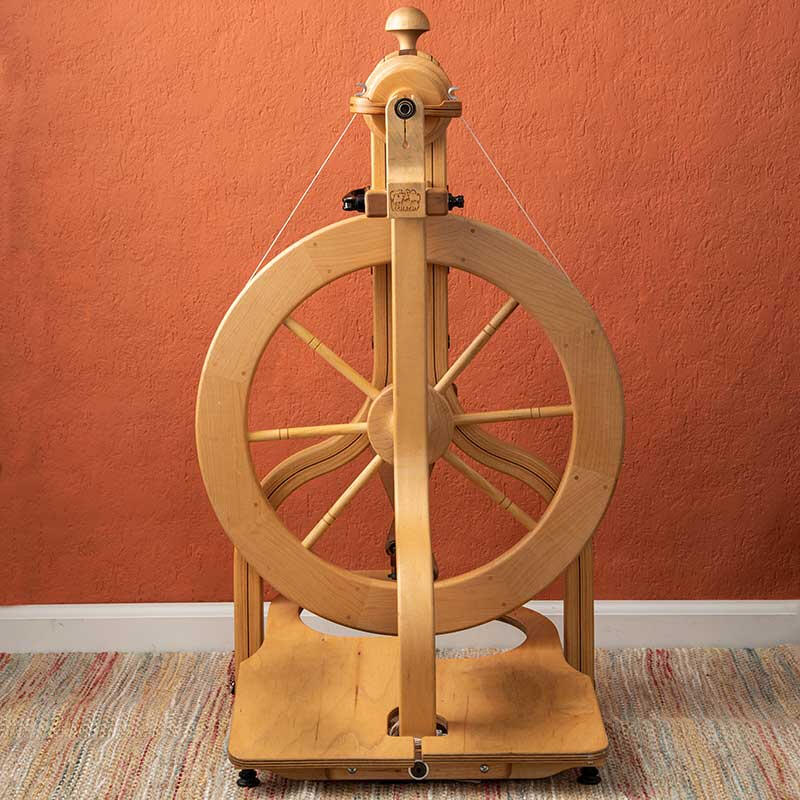
Beyond Beginning Spinning (2025)
Instructor: Maggie Casey
Want to expand your spinning skills? Then this class is for you! First, we’ll tune up our wheels. Then, using carders and combs, we’ll prepare and spin a variety of wools and some other fibers too. We’ll play with different drafts from woolen to worsted and work on consistency in size and twist. After discussing finishing techniques, we can work on planning a project and designing the yarn for it. You will take home a variety of samples and lots of ideas on how to use your beautiful handspun.Required Supplies: Spinning wheel in good working condition with all its parts, 4 bobbins, lazy kate and usual spinning tools, knitting needles in a variety of sizes to knit swatchesSkills Needed: Students should be able to spin a continuous yarn.
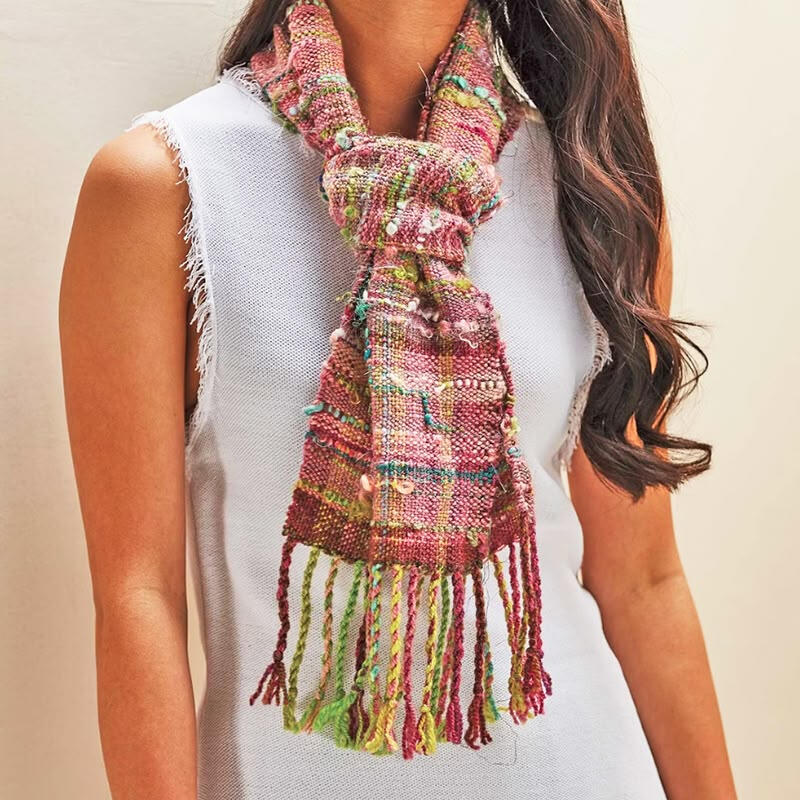
Weaving a Spinner’s Stash: Handspun for Rigid-Heddle (2025)
Instructor: Stephanie Flynn
Weaving with handspun allows you to create incredible fabrics—even when drawing on a stash of precious leftovers. Rigid-heddle looms allow many options for mixed warps while creating very little waste. We will explore yarn with its twists and plies from a weaver’s perspective: How much strength do you really need for a warp? What sizes and textures of handspun can create a successful warp? How do you choose a complementary weft for different fabric qualities? Bring your own handspun stash and learn to warp with a partner to make setting up your loom a breeze. Weaving time will be interspersed with mini lessons to help you get the most out of the workshop. You will leave class with a beautiful mixed-warp scarf ready to wear!Required Supplies: At least 4 ounces of handspun yarns; more is better. If there are commercial yarns you would like to try, bring them, too! Bring scissors, darning needle, and any note-taking supplies you need.Additional Notes: Looms will be provided for this class.
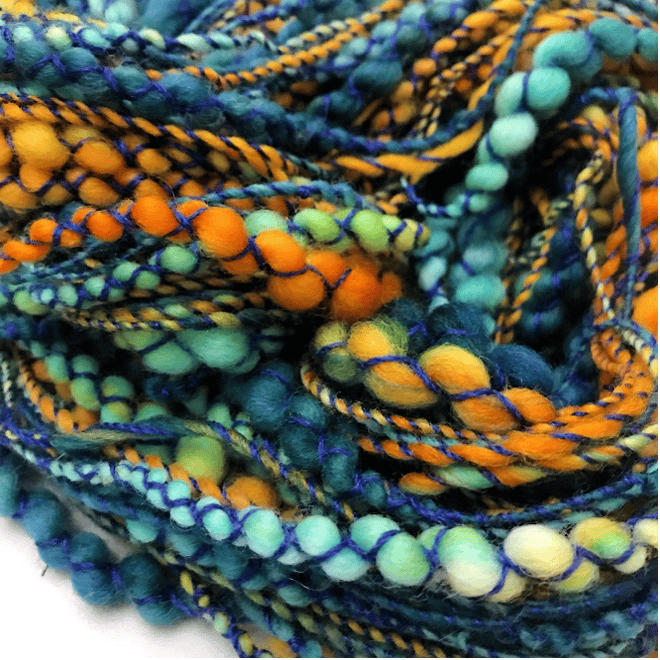
Beyond Thick and Thin: Spirals, Fishnets, Rosebuds & More (2025)
Instructor: Charan Sachar
Thick-and-thin yarns are great when it comes to creating textured yarns, and they are some of Charan’s favorites to spin. This workshop will guide you through spinning thick-and-thin yarns with the intention of plying them into something magical. Using these thick and thin singles, we will explore how to create beehives, fishnets (2-ply crêpe), rosebuds, and more. You will also push these yarns further by additing novelty yarns to the slubs. When you leave class, you’ll be able to add these techniques to your creative spinning repertoire. Charan will also share how he uses creative, colorful yarns in knitting, weaving, and quilting.Required Supplies: Wheel with a large orifice (1/2" or larger) to accommodate textured yarns, 2 or 3 extra bobbins (or ability to wind off bobbins on storage bobbins), lazy kate, fine crochet hook (size 0/2mm or 1/2.25mm), pen and paper for notes, niddy-noddy, and any additional tools you prefer.
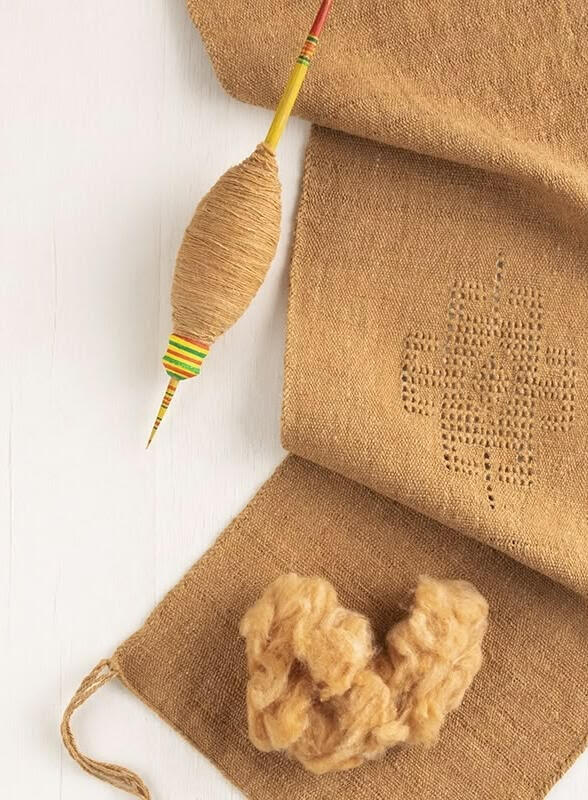
Pueblo Cotton Fiber Preparation & Spinning (2025)
Instructor: Louie García
Pueblo fiber artists have been spinning cotton for weaving and sprang for at least 1500 years. A Pueblo fiber artist of Tiwa and Piro heritage, Louie García preserves and renews the textile traditions of his ancestors. In this unique class, students will learn about the importance of cotton fiber, spinning, and textiles in the Pueblo Southwest through hands-on exploration. You will experience seed cotton, hand ginning, and using Pueblo spindles, which are unlike Navajo or other spindles that most will be familiar with. The mode of spinning is very different from what you have experienced before; no prior cotton spinning experience is required.Required Supplies: NoneAdditional Notes: Materials provided: Seed cotton; spindles and beaters for use in class
2025 Samplers
What’s a sampler? A sampler is a 3-hour class session where you’ll get a taste of a subject: try new techniques, explore new materials, or spark creativity. Participants take part in four samplers over the course of Wednesday and Thursday. 2026 sampler topics will be announced next year.Have additional questions about the classes? Are you curious which ones are beginner-friendly? Contact us at [email protected].
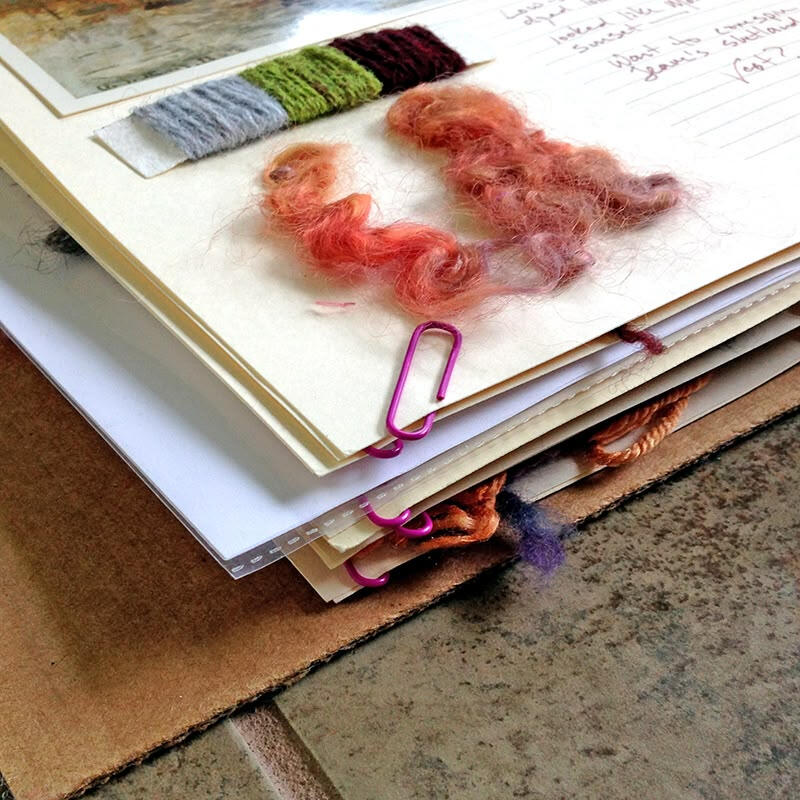
Creative Focus: Building a Spinner's Idea Notebook (2025)
Instructor: Kate Larson
Inspiration is everywhere. The challenge for fiber artists is in translating interesting architecture, a sunset, or a memory into yarn and textiles. In this workshop, Kate will share with you how she uses a spinner's creativity notebook to capture fleeting color combinations and pattern ideas, while keeping no-fuss, yet accurate samples. You will leave with a spinner's notebook, several of your own color-texture studies, and a new way to capture your creativity.Required Supplies: Several spindles or a spinning wheel in good working condition, extra bobbins, lazy kate, handcards.
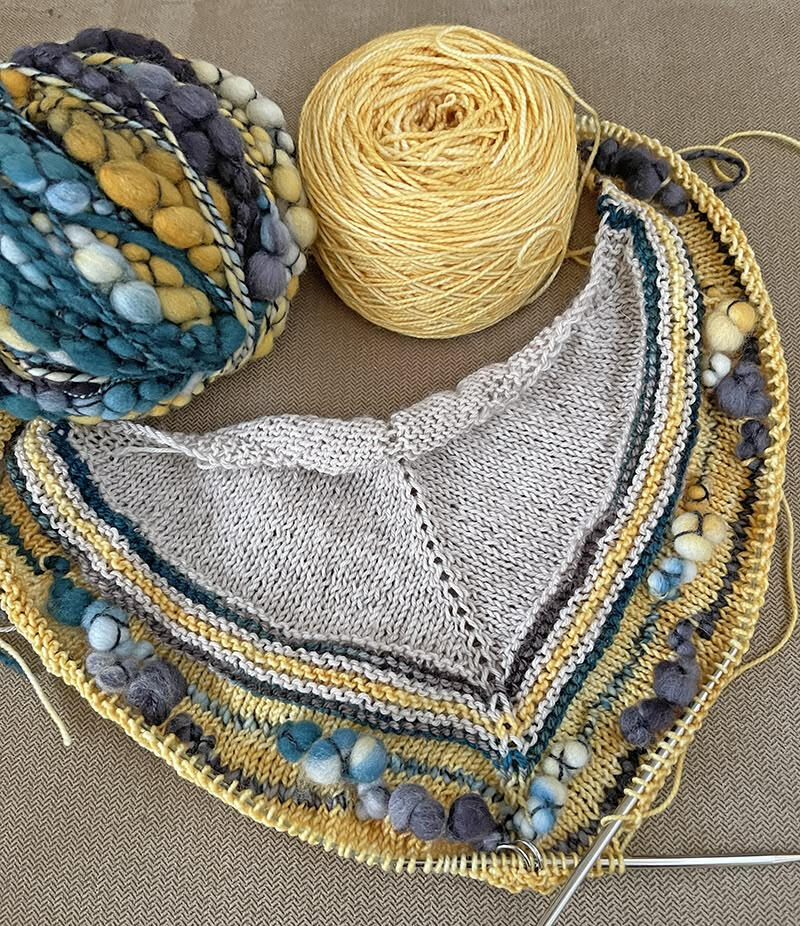
Creative Knitting with Art Yarns (2025)
Instructor: Charan Sachar
Art yarns look pretty and are great for sharing on social media, but have you wondered how you could use these yarns in your knitting projects? Using art yarns for weaving seems obvious, but these yarns can enhance your knitting projects, too. Charan will share ways of using different kinds of art yarns in knitting projects. By practicing these techniques and learning what technique works best for each yarn, you will gain the skills to use these yarns in your future projects.Required Supplies: Straight or circular knitting needles in US 7, 8, or 9 for swatching worsted-weight yarn, and knitting notions as you prefer.Additional Notes: Yarns will be provided, but bring any art yarn that you would like to explore during class.
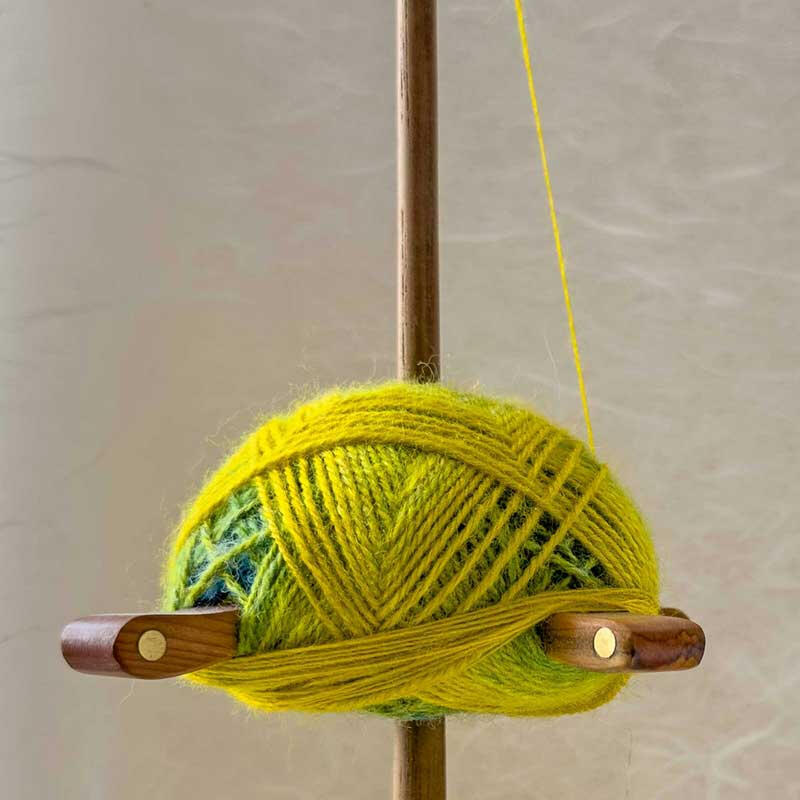
Spindles Can Ply! (2025)
Instructor: Amelia Garripoli
Whether you’re just starting with spindles or already spinning circles around your friends, this workshop will level up your plying game with techniques that can elevate your yarn. We’ll kick things off by mastering speed plying with a multi-strand ball—your spindle’s new best friend. Then we’ll unlock the secrets to achieving perfect yarn balance and explore the art of 2-ply vs. 3-ply, delving into how your singles’ thickness and twist affect the final product. Amelia will introduce you to advanced plying methods, including chain plying and ply-on-the-fly. By the end of this workshop, you’ll walk away with new skills, ready to create beautifully balanced yarns on your spindle. Get ready to impress yourself—and your friends—with plying expertise!Required Supplies: Students should bring three balls of singles (can be spindle- or wheel-spun). All three should weigh about 0.5–1 ounce each and be similar in weight and twist. Students should bring at least one spindle—top-whorl, bottom-whorl, or Turkish—that weighs between 0.8–1.4 ounces. It’s fine to bring more than one spindle, as we will tailor techniques to each type.Additional Notes: If you have handcards, please bring them. You are also welcome to bring any spindles you have questions about.
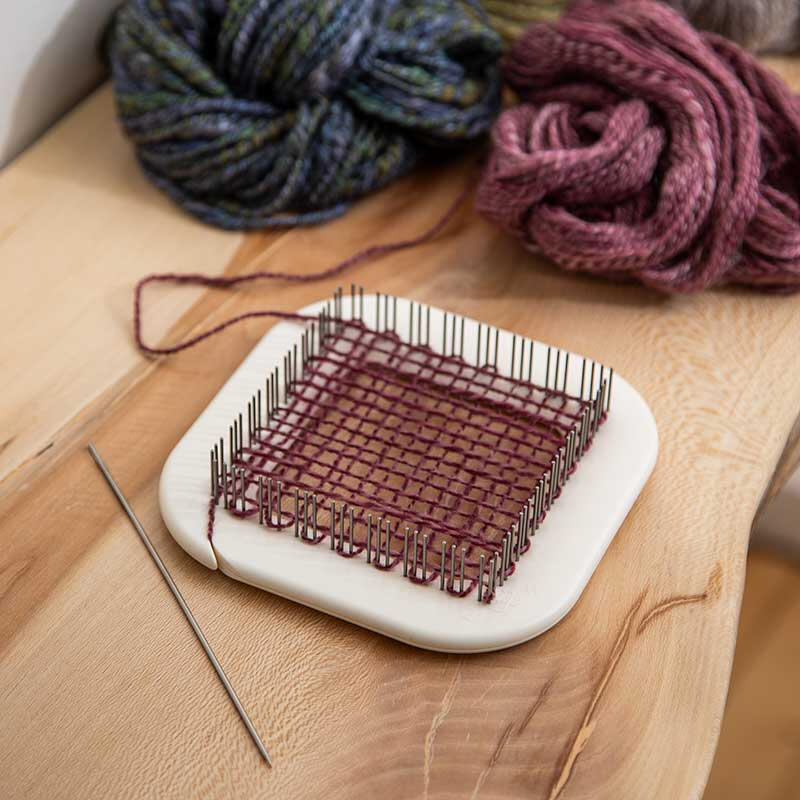
Zoom Loom: A Spinner’s Explorations (2025)
Instructor: Stephanie Flynn
Spinning for weaving is great fun, and pin-loom weaving allows you to create woven cloth with small amounts of yarn—perfect for handspinners who love to explore. Come learn what characteristics come together to make an excellent weaving yarn and how to spin for different fabric qualities. Bring a wheel or spindle and create small samples to weave on the Zoom Loom. This sweet little pin loom requires no previous weaving experience and will be provided for use during class. See your handspun in a small woven sample that could be used as a coaster or sewn together with more squares for a larger project.Required Supplies: Working spinning wheel or e-spinner with extra bobbins and a lazy kate, or several spindles and plying box or similar.Additional Notes: Looms will be provided for this class.
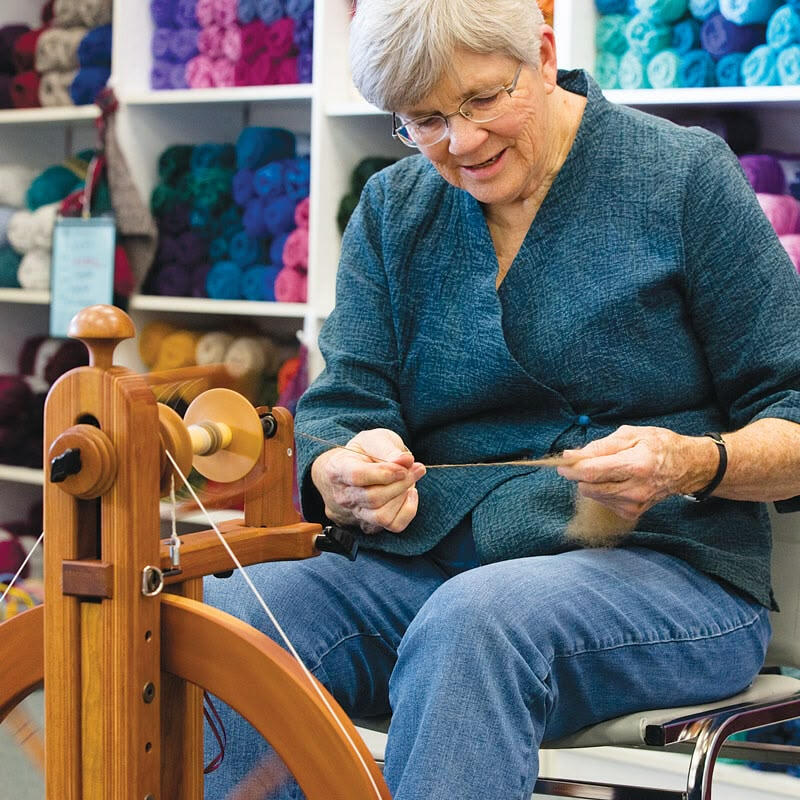
English Long Draw vs. American Long Draw (2025)
Instructor: Maggie Casey
What is the difference between English long draw (double drafting) and American long draw? It depends. We will spin wool and cotton both ways—you can see the difference yourself and add another drafting method to your spinning repertoire.Required Supplies: Spinning wheel or espinner in good working condition and all its parts.
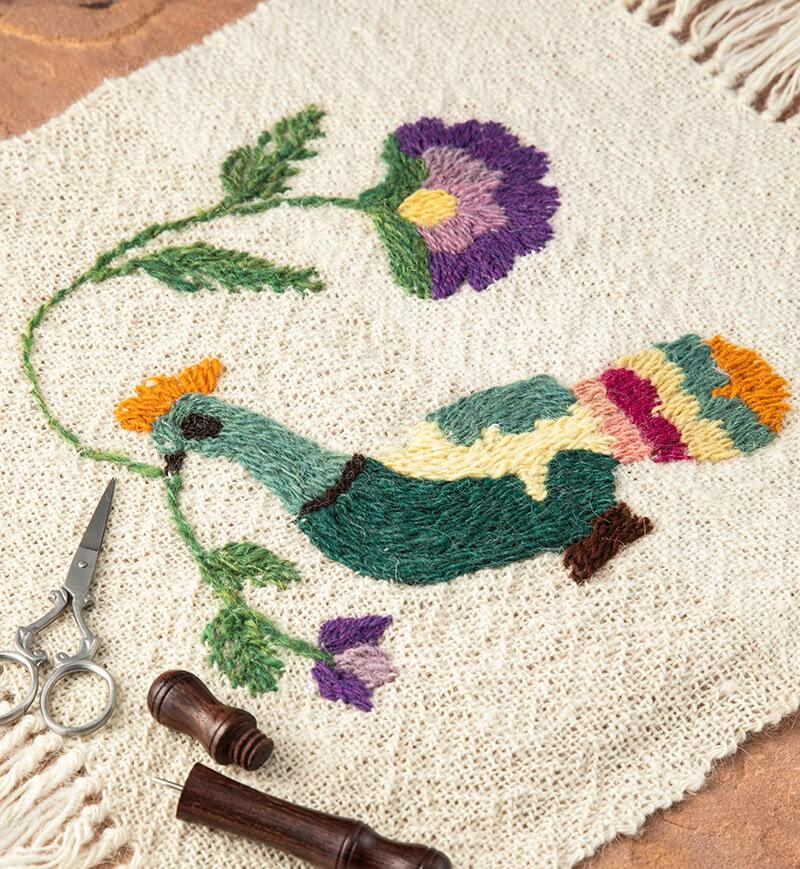
Colorful Colcha Embroidery (2025)
Instructor: Julia Gomez
The heritage art of colcha embroidery has a long history in the American Southwest, and its revival has been a passion for Julia Gomez. This simple couching stitch worked in colorful handspun is free-form and flowing, perfect for both fine detail and large motifs. Join Julia to hear the history of this stitching tradition, learn colcha embroidery techniques by creating a small sampler, and see Julia’s handspun embroidered works up close.Required Supplies: Enthusiasm and patience.Additional Notes: No previous embroidery experience is needed but is helpful. Kits with embroidery materials will be provided.
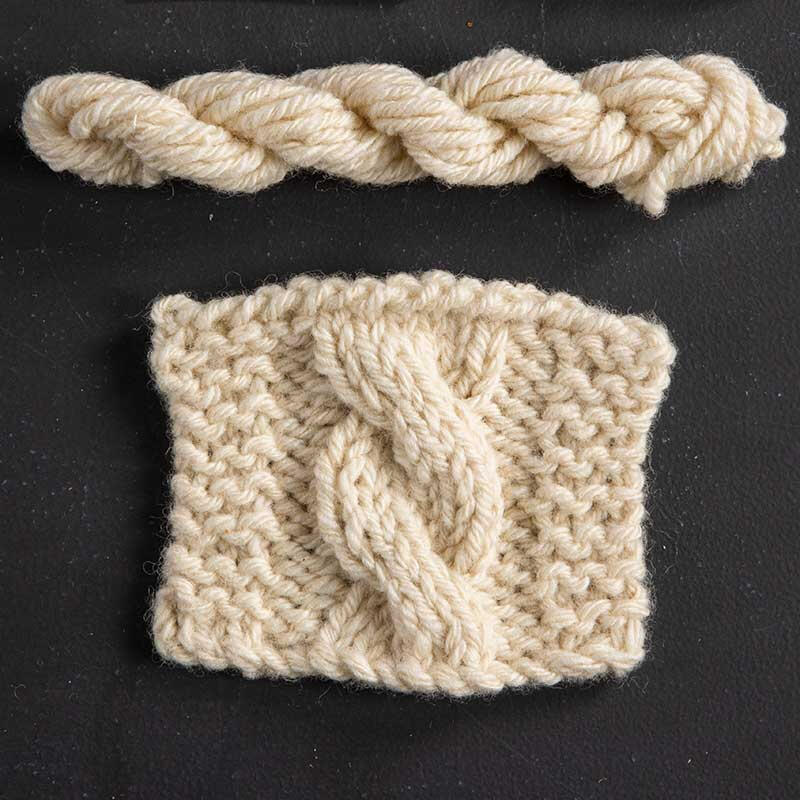
This-a-way, That-a-way—Spinning Opposing Plies (2025)
Instructor: Heavenly Bresser
Expand your skills from traditional yarns to not-so-common yarns with an opposing ply. Spinning these type of yarns requires at least one energized ply. The results are yarns with intriguing texture and increased elasticity. In this session, you’ll learn how to make a basic opposing-ply yarn including helpful tips for successful plying, and also discover the many applications for these kinds of yarns that make them so valuable!Required Supplies: 3 ounces of wool, divided, preferably combed top or roving (see homework for more details), spinning wheel or e-spinner in working order, 2 empty bobbins, lazy kate or equivalent for plying. (No spindles for this session.)Optional Supplies: Niddy-noddy; wraps-per-inch tool.Homework: Spin 1 ounce of wool with a worsted draft on two individual bobbins (0.5 oz on each bobbin). These singles should have a similar grist and be spun in same direction (Z, or clockwise). Take notes on how you’ve spun these singles (i.e. whorl/pulley, or speed on e-spinner). Bring remaining 2 ounces of wool to the workshop. (For example: If your singles are spun from Targhee top, then bring Targhee top for the class session.)
2025 Instructors
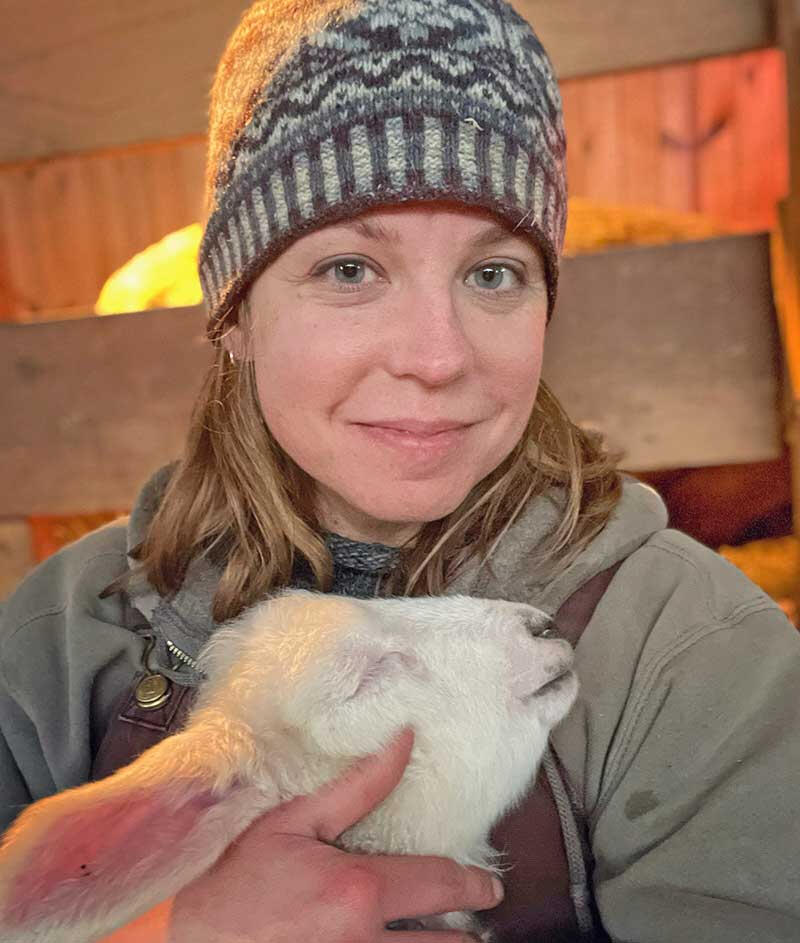
Kate Larson
Kate Larson (she/her) is the editor of Spin Off and loves using fiber arts as a bridge between her passions for art and agriculture. She keeps a flock of Border Leicester sheep and teaches handspinning and knitting throughout the United States. Kate is the author of The Practical Spinner’s Guide: Wool (Interweave, 2015), many articles and patterns, and several videos, including How to Spin on a Charkha (Long Thread Media, 2022).
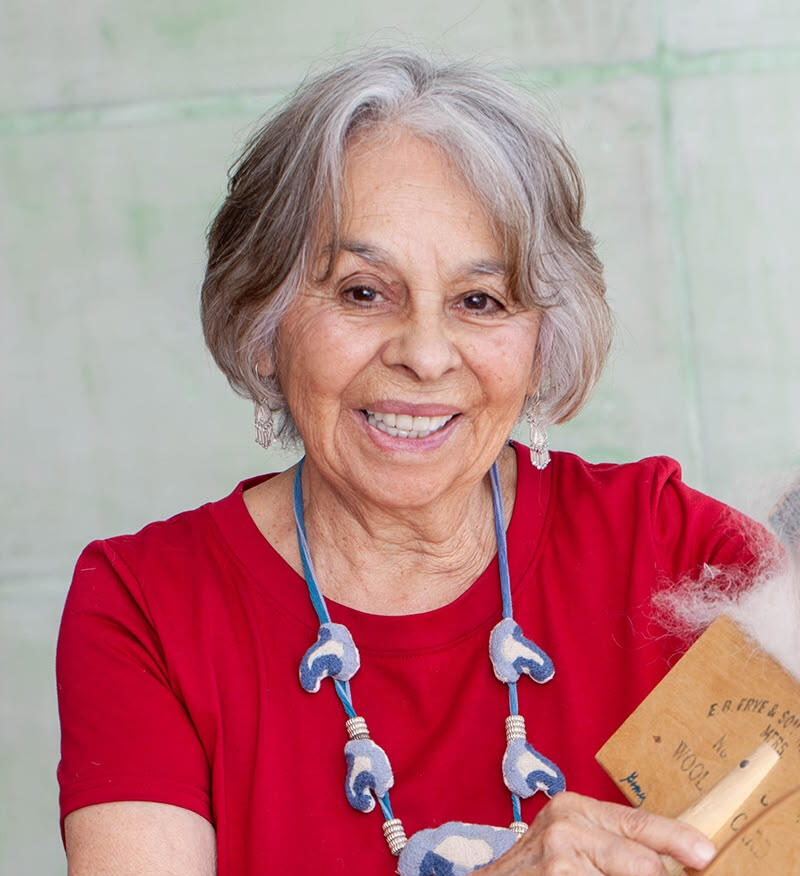
Julia R. Gomez
Julia R. Gomez is an internationally recognized award-winning colcha embroidery artist and teacher from Santa Fe, New Mexico. Julia considers herself the “Johnny Appleseed” of colcha embroidery because she wants to teach anywhere and everywhere, telling the story of the Churro sheep and generations of embroiderers. Her work is in permanent collections at the Albuquerque Museum, the Folk Art Museum in Santa Fe, and more.
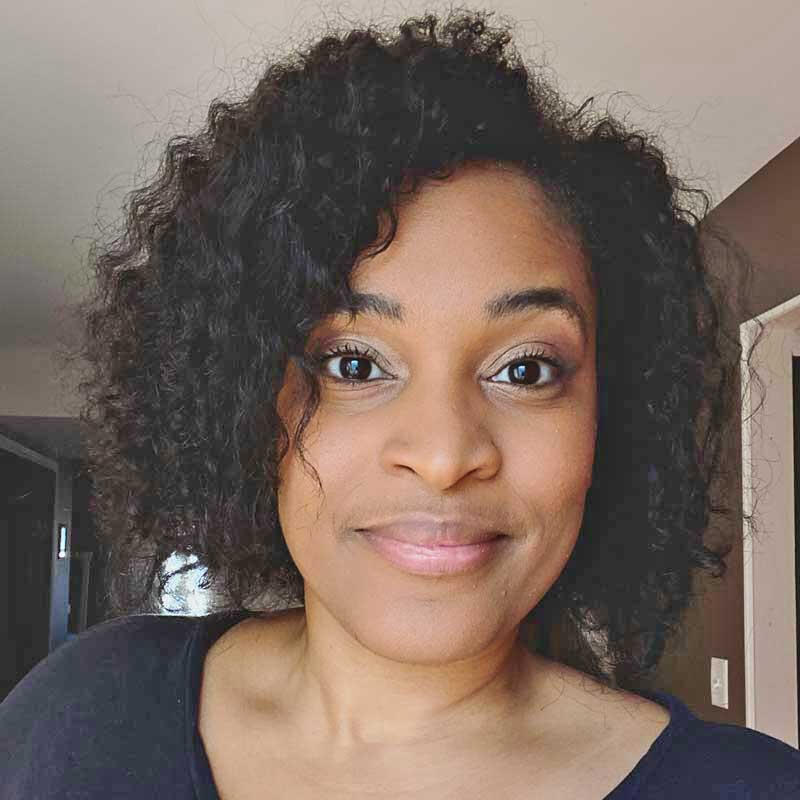
Heavenly Bresser
Heavenly Bresser is an award-winning handspinner, teacher at major fiber events, spinning wheel collector and restorer, and the founder of Heavenly Knitchet. She is excited to share her love of knitting, crocheting, spinning, weaving, and all things fiber related with the world. Some of her areas of passion include a love for working with color, working from fleece, and researching historic information for antique spinning wheels. Heavenly has made it her mission to help fiber artists of all levels expand their knowledge of their craft and try new things. Learn more at heavenlyknitchet.com.
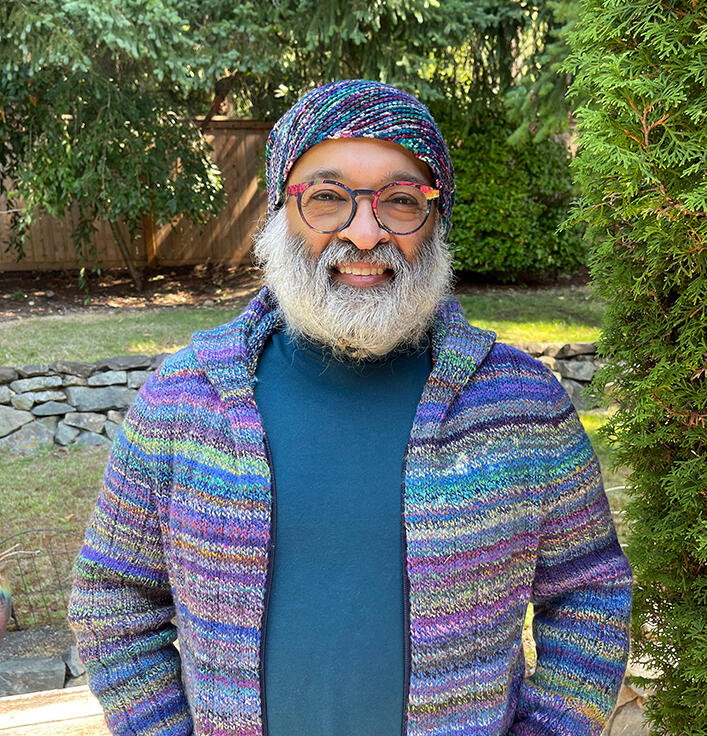
Charan Sachar
Charan Sachar is an artist whose work reflects his passion for the fiber arts, like knitting, spinning, weaving, and quilting, and he uses it as an inspiration for his clay work. In all the fields that he works in, he loves to accept challenges and approach the making with a “what if..” attitude. Charan specializes in creating art yarns with textures, using traditional spinning techniques and pushing them an extra step to create unique yarns. As a teacher, he shares his preferences and his learnings along his journey, but also encourages his students to try techniques/materials by themselves and then decide for themselves. Learn more at creativewithclay.com.
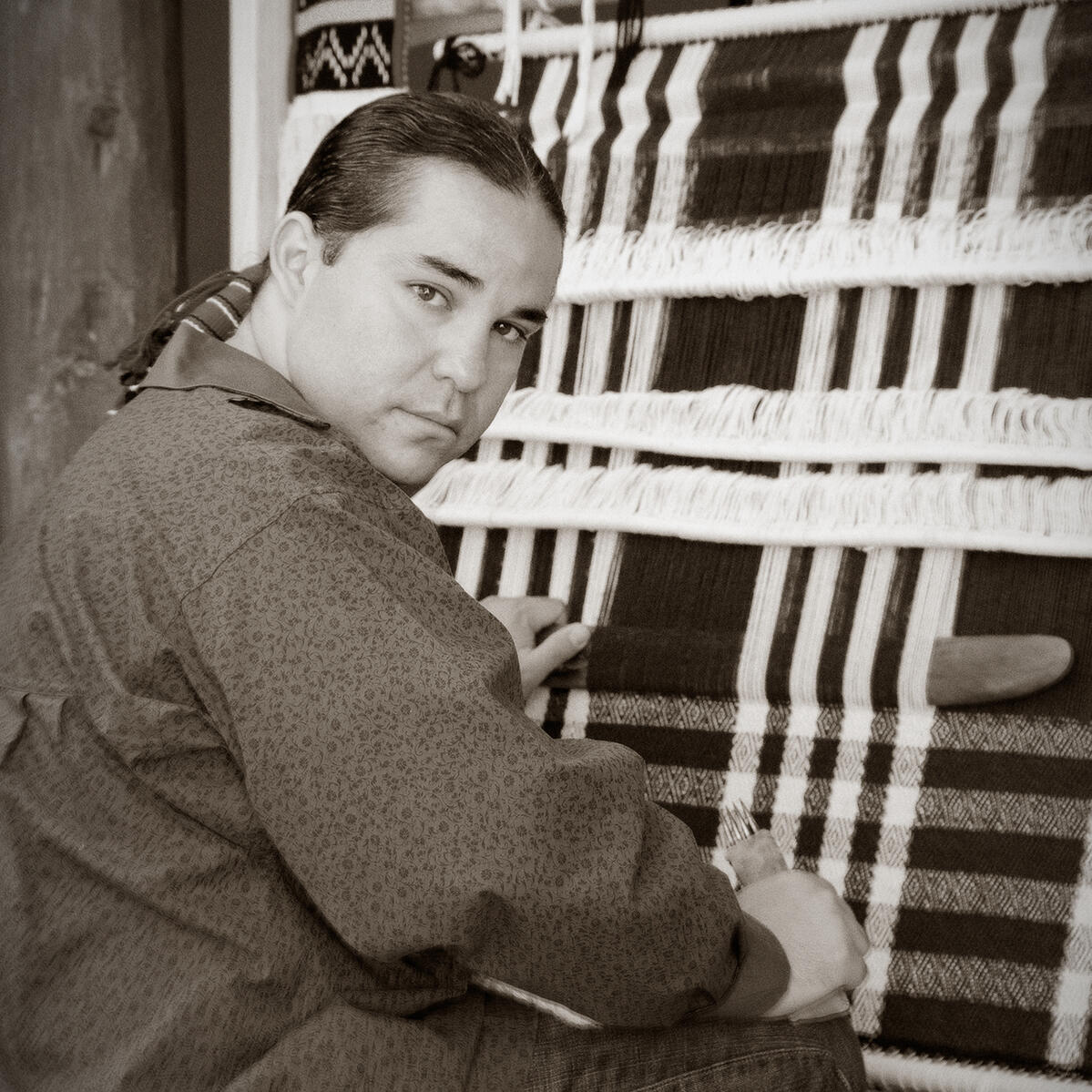
Louie García
Louie García is a Piro Pueblo/Chicano textile artist with over 30 years of experience. He is the president and founder of the New Mexico Pueblo Fiber Arts Guild and regularly teaches Pueblo weaving to Pueblo tribal members as a means of revitalizing the Pueblo textile tradition. Louie also cultivates native cotton varieties from heritage seeds and processes the fiber from the cotton he grows by hand with the help of his wife and two daughters, who are now 13 and 18 years old. Louie’s work is featured in several private and public collections and museums, including the Indian Arts Research Center at the School for Advanced Research in Santa Fe, New Mexico, the Albuquerque Museum, and others.
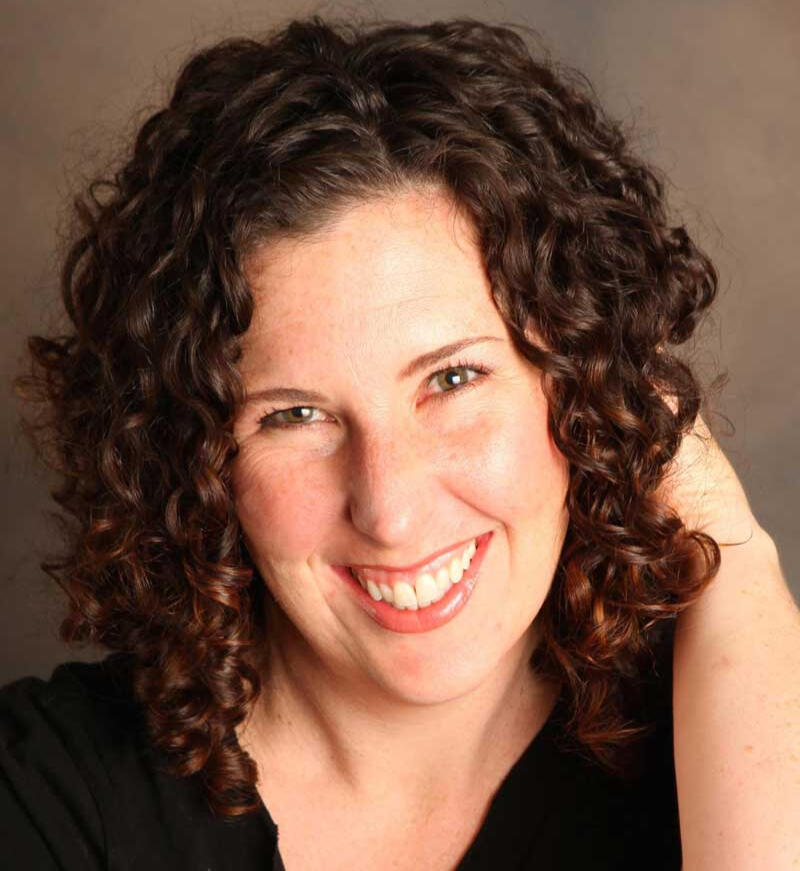
Stephanie Flynn
Stephanie Flynn is a fiber fanatic experienced in teaching and motivating students in many fiber arts. She has a diverse expert background that includes spinning, weaving, knitting, felting, and dyeing. Her interest in learning about fiber arts started at a very young age, and she trained in accessory design at the Fashion Institute of Technology. Stephanie continues expanding her expertise by seeking out the best in the industry. Her online weaving class can be found on craftsy.com and online spinning classes on Schacht School of Textile Arts. Stephanie is coauthor of the book Woven Scarves: 26 Inspired Designs for the Rigid Heddle Loom with Jane Patrick. Her other projects can be found in Spin Off, The Weaver’s Idea Book, and Little Looms. She loves to spread her contagious enthusiasm for fiber with everyone she meets and vows that students are sure to find inspiration in any class she teaches.
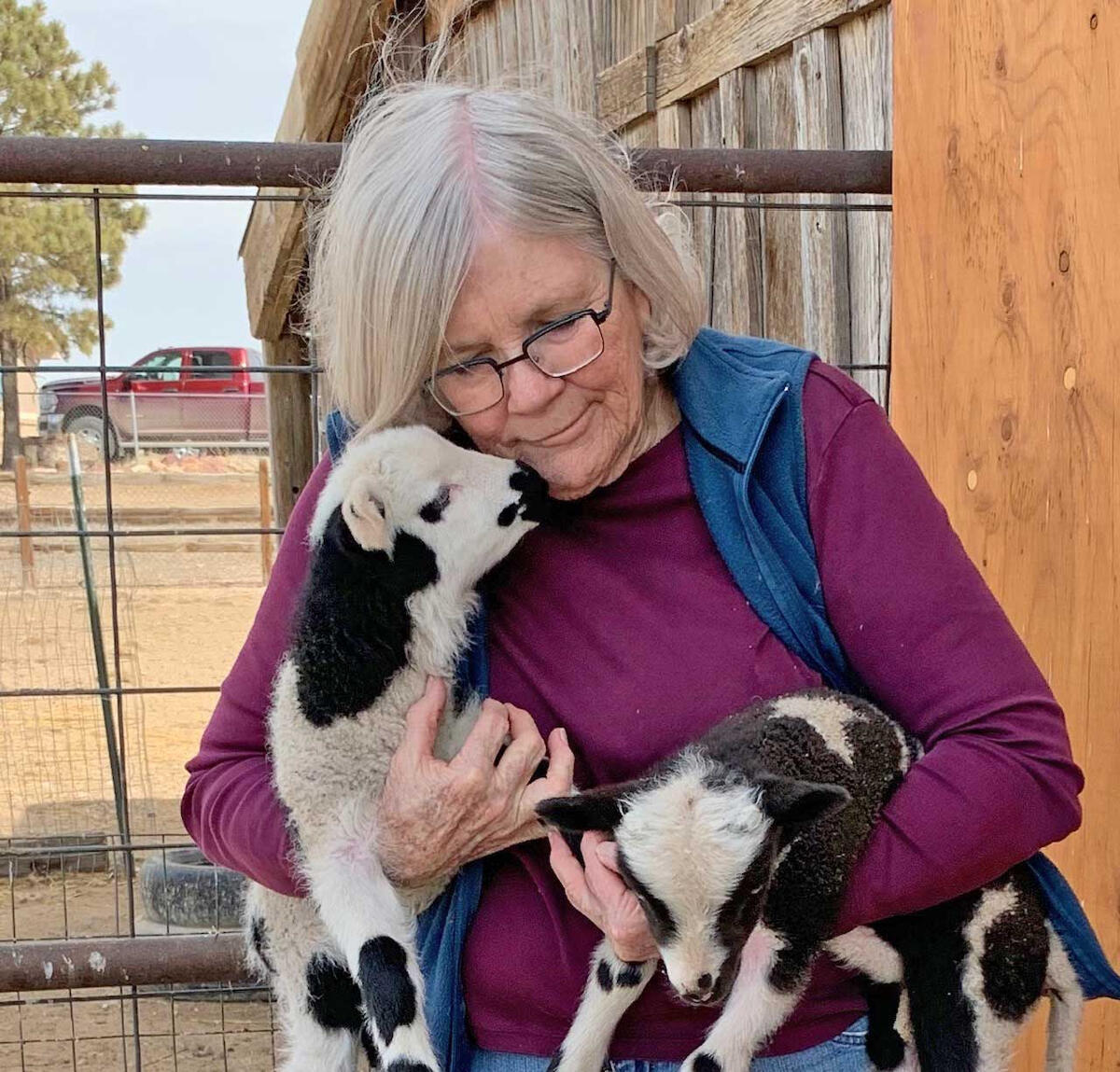
Maggie Casey
Maggie Casey has been addicted to spinning since the last century, and while some people are proud of their wine cellars, she much prefers her basement full of fleece. Maggie was co-owner of Shuttles Spindles & Skeins in Boulder, Colorado, until it closed in 2020. She teaches at events around the country, including Estes Park Wool Market, Harrisville Designs, John C. Campbell Folk School, Maryland Sheep & Wool, PlyAway, and SOAR. She holds Part 1 of HGA’s Certificate of Excellence in Handspinning and is the author of Start Spinning, many articles, and several videos from Long Thread Media.
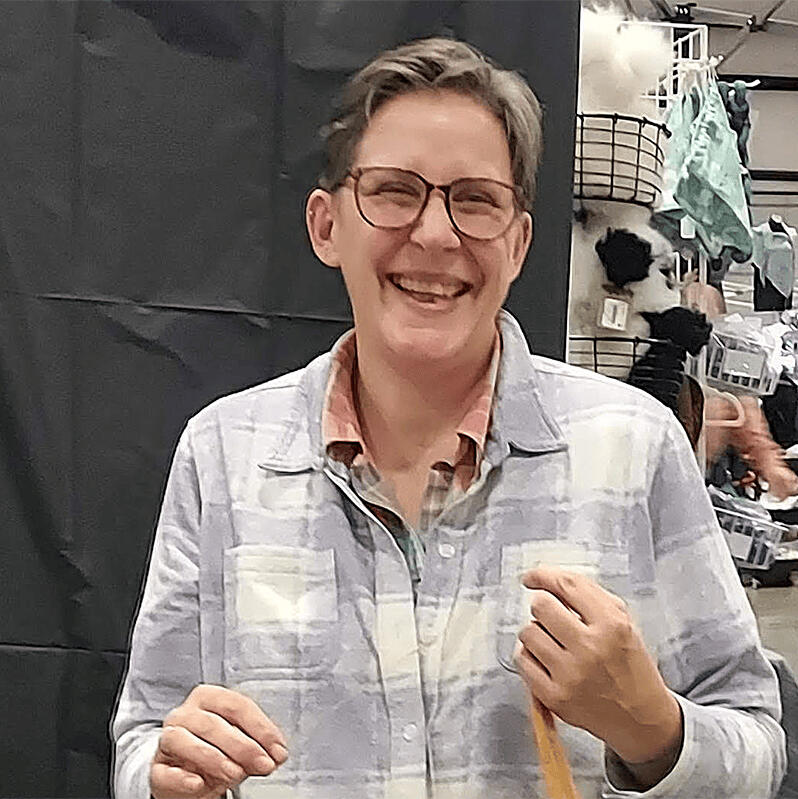
Amelia Garripoli
Amelia Garripoli learned to knit at her mother’s knee; her fiber journey blossomed in 2001 with a home—and llamas—of her own. Since then, she has explored spinning, weaving, dyeing, nålbinding, and sock machines. A passionate teacher, she leads workshops at fiber festivals, guilds, and e-spinning Zoom classes. Her work appears in Spin Off and PLY, and she’s the author of Productive Spindling, Power Spinning, and two spindle videos from Spin Off. She spins, weaves, and plays string games as she explores fiber festivals across America. Find her at askthebellwether.com.








